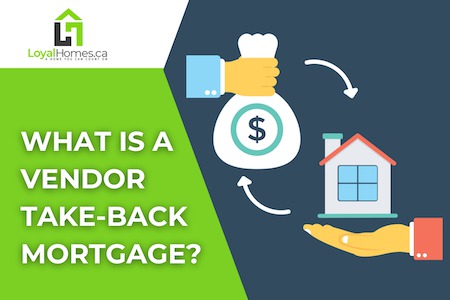
- Login / Register
- (778) 909-1305
- Professional Advice

What Is an Assignment Sale? Understanding the Ins and Outs of This Real Estate Process
An assignment sale occurs when the original buyer of a property (the assignor) transfers their rights and obligations of the property contract to another buyer (the assignee) before the official closing of the sale.
This process allows the assignee to step into the original purchaser's shoes, taking on the commitments of the property purchase, which could be a pre-construction condo, house, or any other form of real estate.

Now, let's delve deeper into understanding how assignment sales work, their intricacies, and what they mean for buyers and sellers in the real estate market.
Demystifying the Elements of an Assignment Sale
Embarking on a real estate journey often introduces many terms and processes that may seem complex at first glance, with 'assignment sales' leading the pack in complexity and confusion.
Whether you're the original buyer looking to navigate away from closing costs or a savvy purchaser hunting for a valuable investment, understanding the nuts and bolts of assignment sales is an invaluable asset in the dynamic landscape of real estate.
How Assignment Sales Work
Assignment sales introduce a unique dynamic in real estate transactions, particularly in bustling markets like Vancouver Island and the Sunshine Coast .
When you buy a pre-construction unit, the property is yours, albeit not immediately ready for occupation. Life changes or financial circumstances sometimes evolve between the original purchase agreement and the final closing, necessitating a shift in plan.
Here's where assignment sales come into play. The original buyer can sell their interest in the property before the final sale, sidestepping typical hurdles like mortgage payments or land transfer taxes that come with a regular sale. This method provides a strategic avenue for purchasers to hand over their contractual obligations to another party without waiting for the property's completion.
The Assignment Clause: A Vital Cog in the Wheel
The assignment clause in the original contract is central to these types of transactions. This clause allows the transfer of the buyer's rights and responsibilities to another person.
It's crucial to understand that not all pre-construction sales agreements have an assignment clause, and most builders or developers might impose restrictions or require consent before any assignment deal can proceed.
Understanding the Financials: Costs and Fees
Engaging in assignment sales tends to involve several costs that both the buyer and seller must anticipate.
These include the assignment fee charged by the developer, legal fees for contract transfer, and possibly higher legal fees due to the complexity compared to a resale property. There could also be tax implications depending on the nature of the transaction and the parties involved.
Navigating Through the Interim Occupancy Period
A common scenario in assignment sales, especially in pre-construction condos, is dealing with the interim occupancy period.
This period arises when the assignee can take possession (though not ownership) of the unit while the property is not officially registered. During this phase, the assignee pays occupancy fees, akin to rent, which don't go towards mortgage payments.
Understanding this period helps both parties make an informed decision and prepare for the financial responsibilities it entails.
The Pros and Cons of Assignment Sales
Navigating assignment sales requires a balanced understanding of its advantages and drawbacks. While these transactions open avenues for lucrative deals and flexible arrangements, they also carry inherent risks and complexities that can impact buyers and sellers.

This exploration will provide clear insights, aiding your decision-making in the vibrant real estate market.
The Bright Side: Benefits of Assignment Sales
- Less Competition, More Opportunities: One advantage that makes assignment sales attractive, particularly in areas prone to bidding wars like Vancouver Island , is less competition. Fewer buyers are willing or informed about engaging in this kind of sales transaction, reducing the frenzy often seen in hot real estate markets. This situation can present a more favourable buying environment for those ready and willing to proceed with an assignment purchase.
- Potential for a Better Deal: For buyers, assignment sales sometimes offer the opportunity to get into a brand-new unit at a potentially lower cost. Since the assignee is stepping into an existing agreement, they might benefit from the original purchase price, which could be lower than current market rates, especially in fast-growing communities.
- Flexibility for the Original Buyer: For the original buyer, an assignment sale offers a way out, potentially recouping the deposit paid and avoiding financial penalties that might come with breaking a purchase agreement. This strategy can be particularly advantageous if the purchaser's circumstances change and needs to free up cash or avoid taking on a mortgage.
The Flip Side: Challenges and Risks of Assignment Sales
- Complexity and Higher Legal Fees: Assignment sales are not your straightforward real estate transaction. They require additional steps, such as securing the developer's consent, and the legal process is more complex than purchasing resale properties. As a result, both parties might incur higher legal fees to facilitate the transaction.
- Financial Overheads and Closing Costs: For the assignee, the initial cost outlay can be substantial for the assignee. They must reimburse the original buyer's deposit, pay the assignment fee, cover land transfer taxes, and prepare for other closing costs. These expenses require careful consideration and financial planning.
- Uncertainties and Marketing Restrictions: In some cases, developers impose marketing restrictions, making it challenging to advertise the assignment sale. Additionally, the assignee, now the new buyer, takes on certain risks like development charges or changes in market conditions, which could affect the property's value upon final closing.
Making the Move: Deciding If an Assignment Sale Is Right for You
Deciding to engage in an assignment sale is a pivotal moment, requiring a blend of financial foresight and market understanding.
As we delve into this decision-making process, we'll consider critical personal and economic factors that ensure you're making a choice that aligns with your real estate ambitions and lifestyle aspirations.
Conduct Due Diligence: Know What You're Getting Into
Involving real estate agents experienced in assignment sales is a prudent step for guidance through the intricacies of these transactions.

Also, consulting with a real estate lawyer ensures you understand the legalities, your rights, and any potential liabilities you might be assuming.
Consider Your Financial Standing and Long-Term Goals
Reflect on your current financial health and future plans.
For original buyers, if life changes dictate a change in your real estate investments, an assignment sale could be a viable exit. For potential assignees, consider whether this buying pathway aligns with your investment strategy and if you're comfortable with the associated risks.
Stay Informed About Market Conditions
Market dynamics greatly influence real estate valuations. A clear picture of current trends, especially in your buying area (like Fort St John or cities in the Okanagan ), helps make an informed decision.
Understanding these trends could offer insights into whether you're setting yourself up for a profitable investment or a potential financial misstep.
Bringing It All Home with LoyalHomes.ca
Navigating the world of assignment sales can be a complex journey, laden with opportunities and pitfalls. Whether you're considering selling your contractual rights or stepping into an existing purchase agreement, the route is layered with legal, financial, and market considerations.
At Loyal Homes, we understand that your real estate journey is more than just a transaction; it's a pivotal chapter in your life story. We're here to guide you through each step, ensuring you're equipped with the local, accurate, and relevant information to make decisions confidently. Our team is committed to providing a service that stands a notch above the rest, focusing on relationships and community at its core.
Ready to take the next step in your real estate adventure in British Columbia? Whether it's finding the perfect neighbourhood, exploring investment opportunities, or seeking your dream home, we're here to assist.
For a personalized experience tailored to your unique needs, consider our Personalized Home Search . If you're on the selling side and need to understand your property's current market standing, request a Free Home Valuation . Or, for any other inquiries or guidance, feel free to contact us . Your journey to a successful real estate experience in British Columbia starts with LoyalHomes.ca, where your peace of mind is our highest priority.
Frequently Asked Questions
Is it good to buy an assignment sale.
Buying an assignment sale can be advantageous, offering lower purchase prices compared to current market rates for similar properties, especially in hot real estate markets. However, this venture also requires thorough due diligence to ensure that the agreement terms, property details, and financial implications align with your investment goals.
Can You Make Money on an Assignment Sale?
Yes, there is a potential to make money on an assignment sale, particularly if the property's value has increased since the original purchase date. This profit occurs due to appreciation over the period, especially in high-demand areas, but it's crucial to factor in any assignment fees, legal costs, and tax implications to understand the net gainfully.
What Are the Risks of Buying an Assignment Sale?
The risks include a lack of guarantees on the final product as specifications might change, potential delays in construction, and complexities in financing, often requiring a more substantial initial deposit. These elements underscore the importance of legal counsel to navigate contract specifics and to prepare for any contingencies or additional costs.
How Do I Sell My Pre-Construction Assignment?
Selling a pre-construction assignment involves marketing to potential buyers, typically requiring the developer's consent and possibly entailing a fee. Engaging with a real estate professional who understands the local market nuances and legalities of assignment sales is essential to ensure a smooth, compliant transaction.
Do I Pay Tax on Assignment Sale?
Tax implications on assignment sales can be multifaceted, potentially involving income tax on profits and GST/HST on the purchase, depending on factors like the property type and the seller's tax status. It's advisable to consult with a tax professional to accurately determine specific obligations and strategize for tax efficiency based on your circumstances.
What Is the Difference Between a Transfer and an Assignment?
A transfer and an assignment differ significantly; a transfer involves changing property ownership after a project's completion, whereas an assignment sells one's interest in a property before it's finished. Understanding this distinction is crucial as it affects the contractual obligations, rights transferred to the new buyer, and the legal and financial processes involved in the transaction.
- Photo: @ irina88w via Canva.com
- Photo: @ AndreyPopov via Canva.com
- Photo: @ putilich via Canva.com
Post a Comment
Related posts.

Unlocking the Potential of a Vendor Take-Back Mortgage: How Seller Financing Works
Vendor Take Back Mortgages (VTB) offers an innovative financing solution that can be a game-changer for buyers and sellers in the real estate market.... Read More

Mortgage Broker or Bank: Navigating Your Best Path in Home Financing
Choosing between a mortgage broker and a bank for your home financing needs is a crucial decision. Whether you're eyeing the vibrant real estate ... Read More

Complexities of a Lien on the House: A Comprehensive Guide
Navigating the complex world of property liens can be daunting. Liens on a house represent a legal claim against a property, often resulting from ... Read More
We're Here to Help
- X (Twitter)
Have a Question or Want a Free Market Report?
- Advanced Search
- Search by Map
- Property Tracker
- Featured Listings
- Vancouver Island Communities
- Lower Mainland Communities
- Sunshine Coast Communities
- Thompson Okanagan Communities
- Kootenay Rockies Communities
- Cariboo Communities
- Northern BC Communities
- Mortgage Calculator
- Mortgage Pre-Approval
- First Time Buyers
- Making an Offer
- What Are Closing Costs?
- Financial Terms Glossary
- Personalized Home Search
- Factors to Consider When Moving to a New City
- Selling a Home
- Pricing Your Home
- Marketing Your Home
- Showing Your Home
- Adding Value
- Free Market Analysis
- Join Our Group
Greater Toronto Area Real Estate
Toronto | Mississauga | Hamilton | Durham
Call Us Anytime: 416-274-2068
Prefer Text? 416-568-0427
Looking for Bspoke Realty?
10 Essential Things to Know About Real Estate Assignment Sales (for Sellers)
— We take our content seriously. This article was written by a real person at BREL.

What’s an assignment?
An assignment is when a Seller sells their interest in a property before they take possession – in other words, they sell the contract they have with the Builder to a new purchaser. When a Seller assigns a property, they aren’t actually selling the property (because they don’t own it yet) – they are selling their promise to purchase it, along with the rights and obligations of their Agreement of Purchase and Sale contract. The Buyer of an assignment is essentially stepping into the shoes of the original purchaser.
The original purchaser is considered to be the Assignor; the new Buyer is the Assignee. The Assignee is the one who will complete the final sale with the Builder.
Do assignments only happen with pre-construction condos?
It’s possible to assign any type of property, pre-construction or resale, provided there aren’t restrictions against assignment in the original contract. An assignment allows a Buyer of a any kind of home to sell their interest in that property before they take possession of it.
Why would someone want to assign a condo?
Often with pre-construction sales, there’s a long time lag between when the original contract is entered into, when the Buyer can move in (the interim occupancy period) and the final closing. It’s not uncommon for a Buyer’s circumstances to change during that time…new job out of the city, new husband or wife, new set of twins, etc. What worked for a Buyer’s lifestyle 4 years ago doesn’t always work come closing time.
Another common reason why people want to assign a contract is financial. Sometimes, the original purchaser doesn’t have the funds or can’t get the financing to complete the sale, and it’s cheaper to assign the contract to a new purchaser, than it is to renege on the sale.
Lastly, assignment sales are also common with speculative investors who buy pre-construction properties with no intention of closing on them. In these cases, the investors are banking on quick price appreciation and are eager to lock in a profit now, vs. waiting for the original closing date.
What can be negotiated in an assignment sale?
Because the Assignee is taking over the original purchaser’s contract, they can’t renegotiate the price or terms of the contract with the Builder – they are simply taking over the contract as it already exists, and as you negotiated it.
In most cases, the Assignee will mirror the deposit that you made to the Builder…so if you made a 20% deposit, you can expect the new purchaser to do the same.
Most Sellers of assignments are looking to make a profit, and part of an assignment sale negotiation is agreeing on price. Your real estate agent can guide you on price, which will determine your profit (or loss).
Builder Approval and Fees
Remember that huge legal document you signed when you made an offer to buy a pre-construction condo? It’s time to take it out and actually read it.
Your Agreement of Purchase & Sale stipulated your rights to assign the contract. While most builders allow assignments, there is usually an assignment fee that must be paid to the Builder (we’ve seen everything from $750 to $7,000).
There may be additional requirements as well, the most common being that the Builder has to approve the assignment.
Marketing Restrictions
Most pre-construction Agreements of Purchase & Sale from Toronto Builders do not allow the marketing of an assignment…so while the Builder may give you the right to assign your contract, they restrict you from posting it to the MLS or advertising it online. This makes selling an assignment extremely difficult…if people don’t know it’s available for sale, how they can possibly buy it?
While it may be very tempting to flout the no-marketing rule, BE VERY CAREFUL. Buyers guilty of marketing an assignment against the rules can be considered to have breached the Agreement, and the Builder can cancel your contract and keep your deposit.
We don’t recommend advertising an assignment for sale if it’s against the rules in your contract.
So how the heck can I find a Buyer?
There are REALTORS who specialize in assignment sales and have a database of potential Buyers and investors looking for assignments. If you want to be connected with an agent who knows the ins and outs of assignment sales, get in touch…we know some of the best assignment agents in Toronto.
What are the tax implications of real estate assignment?
Always get tax advice from a certified accountant, not from the internet (lol).
But in general, any profit made from an assignment is taxable (and any loss can be written off). The new Buyer or Assignee will be responsible for paying land transfer taxes and any HST that might be due.
How much does it cost to assign a pre-construction condo?
In addition to the Builder assignment fees, you will likely have to pay a real estate commission (unless you find the Buyer yourself) and legal fees. Because assignments are more complicated, you can expect to pay higher legal fees than you would for a resale property.
How does the closing of an assignment work?
With assignment sales, there are essentially 2 closings: the closing between the Assignor and the Assignee, and the closing between the Assignee and the Builder. With the first closing (the assignment closing) the original purchaser receives their deposit + any profit (or their deposit less any loss) from the Assignee. On the second closing (between the Builder and the Assignee), the Assignee pays the remaining amount to the Builder (usually with the help of a mortgage), and pays land transfer taxes. Title of the property transfers from the Builder to the Assignee at this point.
I suppose it could be said that there is a third closing too, when the Buyer takes possession of the property but doesn’t yet own it…this is known as the interim occupancy period. The interim occupancy occurs when the unit is ready to be occupied, but not ready to be registered with the city. Interim occupancy periods in Toronto range from a few months to a few years. During the interim occupancy period, the Buyer occupies the unit and pays the Builder an amount roughly equal to what their mortgage payment + condo fees + taxes would be. The timing of the assignment will dictate who completes the interim occupancy.
Assignments vs. Resale: Which is Better?
We often get calls from people who are debating whether they should assign a condo they bought, or wait for the building to register and then sell it as a typical resale condo.
Pros of Assigning vs. Waiting
- Get your deposit back and lock in your profit sooner
- Avoid paying land transfer taxes
- Avoid paying HST
- Maximize your return if prices are declining and you expect them to continue to decline
- Lifestyle – sometimes it just makes sense to move on
Cons of Assigning vs Waiting
- The pool of Buyers for assignment sales is much smaller than the pool of Buyers for resale properties, which could result in the sale taking a long time, getting a lower price than you would if you waited, or both.
- Marketing restrictions are annoying and reduce the chances of finding a Buyer
- Price – What is market value? If the condo building hasn’t registered and there haven’t been any resales yet, it can be difficult to determine how much the property is now worth. Assignment sales tend to sell for less than resale.
- Assignment sales can be complicated, so you want to make sure that you’re working with an agent who is experienced with assignment sales, and a good lawyer.
Still thinking of assignment your condo or house ? Get in touch and we’ll connect you with someone who specializes in assignment sales and can take you through the process.
Search by keyword or select a category below.
- Market Updates
- First Time Buyers
- 65+ Real Estate
- Aging in Place
- Mississauga
- Real Estate Crushes
- For Realtors
Raj Singh says:
What can be things to look for, especially determining market value for an assigned condo? I’m the assignee.
Sydonia Moton says:
Y would u need a lawyer when u buy a assignment property
Gideon Gyohannes says:
Good clear information!
Who pays the assignment fee to the developer? Assignor or Assignee?
Thanks Gideon 416 4591919
Melanie Piche says:
It’s almost always the Seller (though I suppose could be a point of negotiation).
Fiona Rourke says:
If there are 2 names on the agreement and 1 wants to leave and the other wants to remain… does the removing of 1 purchaser constitute an assignment
Brendan Powell says:
An assignment is one way to add or remove people from a contract, but not the only way…and not the simplest. Speak to your lawyer for advice on what makes the most sense for your specific situation. For a straightforward resale purchase you could probably just do an amendment signed by all parties. If it’s a preconstruction purchase with various deposits paid, etc it could be more complicated.
Katerina says:
Depends on the Developer. Some of them remove names via assignments only.
Haroon says:
Is there any difference in transaction process If assigner or seller of a pre constructio condo is a non resident ? Is seller required to get a clearance certificate from cRA to complete the transaction ?
Nathalie says:
Hello , i would like to know the exact steps for reassignment property please.
Amazing info. Thanks team. I may just touch base with you when my property in Stoney Creek is completed in. 2020. I may need to reassign it to someone Thanks
Victoria Bachlowa says:
If an assignor renegs on the deal and refuses to close because they figured out they could get more money and the assignment was already approved by the builder and all conditions fulfilled what can the Assignee do. I have $33,000 dollars in trust in the real estate’s trust fund. They sent me a mutual release which I have not signed. The interim occupancy is Feb. 1 and the closing is schedule for Mar. 1, 2019. I have financing in place, was ready to move in Feb. 1 and I have no where to live.
Definitely talk to your lawyer right away. They’ll want to look at your agreement of purchase and sale and will be able to advise you.
With assignment sales, there are essentially 2 closings: the closing between the Assignor and the Assignee, and the closing between the Assignee and the Builder. With the first closing (the assignment closing) the original purchaser receives their deposit + any profit (or their deposit less any loss) from the Assignee. Can I assume that these closing happen at the same time? I’m not sure how and when I would be paid as the Assignor.
What happens to the deposits or any profits already paid if the developer cancels the project after an assignment?
Hi, Did you get answer to this? I did an assignment sale last year and now the builder is not completing apparently and they are asking for their money back. Can they do that? After legal transactions, the lawyer simply said “the deal didn’t go through”. Apparently builder and the person who assumed the assignment agreed on taking out the deal. What do I have to pay back after it was done a year ago
This is definitely a question for your lawyer – as realtors we are not involved in that part of the transaction. I would expect that just as the builder would have to refund your deposits, you would likely need to do the same…but talk to your lawyer. As to whether the builder can cancel a project, yes they always reserve that right (but the details of how and under what circumstances would be in your original purchase agreement). It’s one of the annoying risks in buying preconstruction!
I completed the sale of my assignment in Dec 2015 however the CRA says I should be reporting the capital income in 2016 when the assignee closed his deal with the developer in July 2016. That makes no sense to me since I got all my money in Dec 2015. Can you supply any clarification on that CRA policy please?
You’d have to talk to the CRA or an accountant – we’re real estate agents,so we can’t give tax advice.
Hassan says:
Hello, You said that there are two closings. The first one between the assignor and the assignee and the second one between the builder and the new buyer (assignee). My question is that in the first closing does the assignee have to pay the assignor the deposit they have paid and any profit in cash or will the bank add this to the assignee’s mortgage?
The person doing the assigning usually gets their money at the first closing.
Kathy says:
What is the typical real estate free to assign your contract with the builder ?
Hi Kathy While we do few assignments (as they are rarely successful, and builders do not make it easy), in past we have charged more or less the same as we do for a typical resale listing. While there are elements to assignments that should be easier than a resale (eg staging), many other aspects of assignments are much MORE time-consuming, and the risk much higher since attempts to find a buyer for assignments are often unsuccessful. It’s also important to note that due to the extra complication, lawyer’s fees to assign are typically higher than resale as well–although more $ for the purchase side vs the sale side.
Mitul Patel says:
If assignee has paid small amount of deposit plus the original 25% deposit that the assignor has paid to the builder and gets the Keys to the unit since interim possession has been completed, when the condo registration is done and assignee is getting mortgage from the Bank or Pays the remaining balance to the Builder using his savings and decides not to pay the Balance of the Profit amount to Assignor, what are the possibilities in this kind of scenario?
You’d need to talk to a lawyer to find out the options.
David says:
How much exactly do brokers get paid at sale of Assignment? i.e. Would the broker’s fee be a % of your assignment selling price or your home’s selling price? I’m really looking for a clear answer.
I am using this website’s calculator associated with selling your home in Ontario. But there is no information on selling assignments. https://wowa.ca/calculators/commission-calculator-ontario
Realtors set their own commission, so there is no set fee- that website is likely the commission that that agent offers. We often see commissions of 4-5% for assignments. The fee is a % of the price of the assignment – for example, you originally bought for $500K; you’re now assigning for $600K – commission would be payable on the $600K.
Candace says:
Question: if i bought a pre construction condo, can i sell it as soon as it closes or do i have to live in it for 1 year after closing in order to avoid capital gains taxes?
Or does the 1 year start as soon as you move in?
I would suggest you talk to your accountant re: HST credit implications and capital gains, but if you sell it for more than you paid for it, capital gains usually apply.
You mention avoid paying HST when you assign your property. What is the HST based on? It’s not a commercial property that you would pay HST. Explain. Thanks.
HST and assignments are complex and this question is best answered specific to your situation by your accountant and real estate lawyer. In some cases HST is applicable on assignment profits – more details can be found on the CRA website here:
https://www.canada.ca/en/revenue-agency/services/forms-publications/publications/gi-120/assignment-a-purchase-sale-agreement-a-new-house-condominium-unit.html
If you are a podcast listener, the true condos podcast is also a great resource.
https://truecondos.com/cra-cracking-down-on-assignments/
heres one for your comment, purchase pre construction from builder beginning of 2021, to be finished end of 2021, (semi detached) here we are end of 2022, both units are now ready. Had one assigned but because builder didnt accept within certain time frame(they also had a 90 day clause wherein we couldnt assign prior to 90 less firm closing date (WHICH MOVED 4 TIMES). Anyrate now we have a new assinor but the builder says we are in default from the first one and wants 50k to do the assignment (the agreement lists the possibility of assigning for 12k) Also this deal would include us loosing our whole deposit and paying the 12k(plus fees) would be in addition too the 130k we are already loosing. The second property we are trying to close but interest rates are riducous, together with closing costs(currently mortgage company is asking that my wife be added to that one, afraid to even ask this builder. Any advice on how to deal with this asshole greedy builder? We are simply asking for assignment as per contract and a small extension for the new buyer(week or two) Appreciate any advice. Thank you
Dealing with builders/developers can be extremely painful, much worse than resale transactions in our experience. Their contracts are written to protect THEM. Unfortunately all I can say is follow the advice of your lawyer.
Leave A Comment Cancel Reply
Your email address will not be published. Required fields are marked *
Like What You're Reading?
- Name This field is for validation purposes and should be left unchanged.


Real Estate Definition: Assignment Sale
When a buyer enters into a purchase agreement for a pre-constructed or newly built property, they may find themselves in a situation where they no longer wish to proceed with the purchase. In such cases, the buyer can assign their rights and obligations under the agreement to a new buyer – and this is where an assignment sale comes in.
What is an Assignment Sale?
An assignment sale refers to a sales transaction in which the original buyer of a property (“assignor”) transfers their rights and obligations of the Agreement of Purchase and Sale to another buyer (“assignee”) before the original buyer takes possession of the property. The assignee then becomes responsible for completing the deal with the seller. Essentially, an assignment clause allows the buyer to sell the property before they move in. While assignment sales can occur with both homes and condos , they are more common among buyers of pre-construction condos.
Factors to Consider Before Entering an Assignment Sale
While assignment sales can be advantageous, it is crucial for both the original buyer and the new buyer to consider certain factors before entering into such transactions.
Developer’s Consent
Before proceeding with an assignment sale, you must obtain the developer’s consent. Some developers may have strict rules or restrictions, and failure to comply can lead to legal complications.
Assignment Fees
The assignor may charge an assignment fee to the new buyer for transferring their rights and obligations. This fee can vary depending on the market conditions and the specific terms of the Assignor-Assignee Agreement.
Legal Advice
Both parties should seek legal advice before entering into an assignment sale. This ensures that all parties understand their rights, obligations, and potential risks associated with the transaction.
How Does an Assignment Sale Work?
Before proceeding with an assignment sale, the original buyer must obtain the consent of the developer or builder. This step is crucial as some developers may have specific rules or restrictions regarding assignment sales. When the developer consents, the original buyer can look for a new buyer to take over the purchase agreement.
Once there’s a new buyer, both the original buyer and the new buyer (assignee) enter into an agreement known as the Assignor-Assignee Agreement. This agreement outlines the terms and conditions of the assignment sale, including the assignment fee, if any. Then, the developer will review the Assignor-Assignee agreement and may require additional documentation or fees.
Once the developer approves the assignment sale, the closing process begins. At this stage, the new buyer is responsible for completing the purchase, including paying any remaining balance to the developer.
Why Do Assignment Sales Happen?
One primary reason why assignment sales happen is a change of plans. People may decide to leave the area due to personal circumstances such as starting a family, getting married, or looking for job opportunities elsewhere. Additionally, some individuals may face financial challenges that prevent them from completing the purchase.
Alternatively, a common scenario involves investors who never intended to close on the property acquisition. A popular investment strategy is to purchase a property during its early release to take advantage of the emerging market and low pricing and sell it before incurring land transfer taxes, HST, or becoming tied to a mortgage.
Benefits of Assignment Sales
Assignment sales can offer several benefits to both the assignor and the assignee. Some of these benefits include:
Profit Potential
For the original buyer, an assignment sale provides an opportunity to make a profit without completing the purchase. If the market value has increased since the initial purchase agreement, the assignor can sell their rights at a higher price.
Opportunity for Early Ownership
The assignee can benefit from an assignment sale to gain early ownership of a pre-construction property. This can be particularly appealing for individuals looking to invest in real estate or those with specific requirements for a new home.
Flexibility
Assignment sales offer flexibility to both parties involved. The original buyer can exit the purchase agreement without incurring significant penalties, while the new buyer can secure a property without going through the entire pre-construction process.
How a Real Estate Agent Can Help You Navigate this Process
Assignment sales are a complicated process; working with an experienced real estate agent who can help you navigate and understand the ins and outs of this transaction is crucial. These professionals can not only assist you in marketing your assignment, but they can also overcome any limitations imposed by the builder. Moreover, agents have a vast network and can easily connect you with an interested buyer. Although assignment sales may seem daunting, having a skilled lawyer and an experienced realtor is a smart financial move!
The post Real Estate Definition: Assignment Sale appeared first on RE/MAX Canada .

Owning a home is a keystone of wealth… both financial affluence and emotional security.
AssignToday Blog

10 Essential Things To Know About Real Estate Assignment Sale (For Sellers)
What is an assignment.
As the name implies, an assignment is when the original buyer of a property gives up their rights to that contract and assigns it to another buyer (Assignee).
An assignment is different from a sale of property because in a sale both parties (the seller and buyer) are involved; and in an assignment, the seller transfers their rights, interest and benefits under their contract to another buyer. The seller can assign their contract before or after closing day.
When does someone need to assign a real estate purchase contract?
When should you assign your contract?
If you are unable to complete the purchase of a property for whatever reason, but would like to move forward with another buyer and give them an opportunity to buy the property at an agreed upon price, then an assignment may be right for you. Some common reasons why someone might need to assign a real estate purchase contract include:
- Financial hardship due to job loss or sudden illness
- Move to different city/ country
- Personal reasons like marriage, children or birth of newborn
- Death or incapacitation of the original buyer
- Loss of financing
- Original buyer looking to sell off to earn profit (speculative buying)
Is it legal to assign a contract?
The short answer is yes, it’s legal to assign contracts. However, there are certain things you need to know about how this process works before you decide whether or not you want to go through with it.
The first thing you should know is that assigning a contract isn’t a casual decision—it’s a legal document. When you sign an assignment agreement, you’re entering into an agreement with another party (the buyer) where they agree to take over your responsibilities under the original contract.
The second thing worth mentioning here is that while assignments aren’t necessarily uncommon occurrences––especially when dealing with multiple parties––they can be tricky because they often involve changing hands during different stages of closing proceedings which can make things unnecessarily complicated sometimes if not done correctly or thoroughly enough beforehand
How do assignments work?
An assignment is a transfer of a seller’s interest in the contract. In other words, it’s when a buyer assigns their rights under a contract to someone else. This can happen before closing or after closing and both scenarios have different implications for the original buyer (the assignor), as well as the new buyer who has taken over their position (the assignee).
Here’s how it works: The assignor transfers his or her interest in the contract to another person—this is known as an “assignment.” In order for this transfer to take place legally, four conditions must be met:
- Both parties must agree on how much money will be exchanged between them;
- Any existing obligations between either party must be transferred over without interruption;
- All future obligations that arise from signing onto this agreement must also be transferred over without disruption;
- And finally, if there are any fees associated with making this switch then those need to be paid
Are there any restrictions on assignments of purchase contracts?
The answer, in a nutshell: No.
The law does not restrict assignments of purchase contracts. In other words, if you want to assign your contract to another buyer or seller, you can do so freely and without penalty—as long as both parties have signed the contract and the sale has closed (or gone into escrow).
Can I assign my purchase contract to anyone?
The answer to this question is a resounding Yes.
You can assign your contract to anyone you like, as long as they meet the seller’s requirements for buyers.
For example, if your purchase contract requires that buyers have good credit and that they put down 20% in earnest money, then only someone who meets these criteria will be able to take over your contract.
So, who might assign their purchase contract? Here are some examples:
- Family members
- Friends (or friends-of-friends)
- Real estate agents (particularly agents who specialize in assignments)
Can the buyer and seller agree to set a price for the contract assignment before it happens?
The answer is Yes, but it’s not necessary or recommended.
The reason is that once an assignment has been documented, there are no further negotiations between the buyer and seller on that contract. So there’s no need for any further discussion about price in advance of closing (unless you want to include some kind of non-binding agreement).
If you want to see what your property might sell for when it comes time to assign your contract, talk with an agent who specializes in negotiating contracts after they have already been signed by both parties.
What happens to deposits paid by the original buyer (the assignor)?
- The deposit is usually returned to the assignor.
- The deposit is sometimes not returned to the assignor (typically if the buyer was a good one)
- The deposit is always returned to the original buyer if that person is still in contract with you and wants to take over as their own private party sale (PPS).
How do I find an end buyer for my property assignment?
There are several ways you can find an end buyer for your property assignment:
- Ask your real estate agent. Your agent should know of buyers interested in purchasing assignments, or at least be able to refer you to someone who can help.
- Ask your real estate lawyer (or real estate broker). Your attorney may also be able to refer you to a buyer’s attorney he or she knows and trusts personally, many lawyers have clients looking for properties like yours all the time
- Submit Your Assignment on Assign Today. Post your property on AssignToday.Com , lot of buyers are looking to take advantage of assignment sale via our website.
If you’re thinking of buying and selling a pre-construction home, you should understand how real estate assignment sales work.
In short: An assignment sale allows buyers who have already put down their deposits on a property to transfer their contract over to another buyer.
This means that while they are still legally obligated to complete the deal, they can make a profit by selling their right to buy the home at its current market value.
The seller will then go ahead with the original sale and collect an additional commission for facilitating this transaction.
While this might sound like an easy way for sellers to make money off of homes that haven’t sold yet (and potentially even get paid twice), there are some things you should keep in mind before taking advantage of real estate assignment sales yourself: you should connect with the Real Estate Professional who specializes in buying and selling preconstruction homes.
Meghna Negi
Leave a Reply Cancel reply
Your email address will not be published. Required fields are marked *
Save my name, email, and website in this browser for the next time I comment.

- New Homes in Canada
- New Homes in Ontario
- New Homes in Toronto
- New Homes in York
- New Homes in Peel
- New Homes in Halton
- New Homes in Simcoe
- New Homes in Durham
- New Homes in Hamilton
- New Homes in Kawartha Lakes
- New Homes in Waterloo
- Cielo Condos
- One Delisle Condos
- Adagio Condos
- Express Condos
- LeftBank Condos
- Pearl Place Condos
- 75 James Condominiums
- Exchange District Condos 3
- Houses for Sale in Canada
- Houses for Sale in Ontario
- Houses for Sale in Toronto
- Houses for Sale in York
- Houses for Sale in Peel
- Houses for Sale in Simcoe
- Houses for Sale in Halton
- Houses for Sale in Niagara
- Houses for Sale in Durham
- Houses for Sale in Hamilton
- Houses for Sale in Waterloo
- Houses for Sale in Ottawa
- Condos in Toronto
- Condos in Durham
- Condos in Halton
- Condos in Hamilton
- Condos in Simcoe
- Condos in Wellington
- Condos in Peel
- Condos in York
- Condos in Dufferin
- Condos in Niagara
- Condos in Waterloo
- Condos in Ottawa
- Townhouse in Durham
- Townhouse in Halton
- Townhouse in Hamilton
- Townhouse in Simcoe
- Townhouse in Wellington
- Townhouse in Peel
- Townhouse in York
- Townhouse in Dufferin
- Townhouse in Niagara
- Townhouse in Waterloo
- Townhouse in Ottawa
- Detached House in Toronto
- Detached House in Durham
- Detached House in Halton
- Detached House in Hamilton
- Detached House in Simcoe
- Detached House in Wellington
- Detached House in Peel
- Detached House in York
- Detached House in Dufferin
- Detached House in Niagara
- Detached House in Waterloo
- Detached House in Ottawa
- Semi Detached House in Toronto
- Semi Detached House in Durham
- Semi Detached House in Halton
- Semi Detached House in Hamilton
- Semi Detached House in Simcoe
- Semi Detached House in Wellington
- Semi Detached House in Peel
- Semi Detached House in York
- Semi Detached House in Dufferin
- Semi Detached House in Niagara
- Semi Detached House in Waterloo
- Semi Detached House in Ottawa
- Commercial Property in Toronto
- Commercial Property in Durham
- Commercial Property in Halton
- Commercial Property in Hamilton
- Commercial Property in Simcoe
- Commercial Property in Wellington
- Commercial Property in Peel
- Commercial Property in York
- Commercial Property in Dufferin
- Commercial Property in Niagara
- Commercial Property in Waterloo
- Commercial Property in Ottawa
- Office in Toronto
- Office in Durham
- Office in Halton
- Office in Hamilton
- Office in Simcoe
- Office in Wellington
- Office in Peel
- Office in York
- Office in Dufferin
- Office in Niagara
- Office in Waterloo
- Office in Ottawa
- Houses for Sale in Markham
- Houses for Sale in Vaughan
- Houses for Sale in Richmond Hill
- Houses for Sale in Mississauga
- Houses for Sale in Brampton
- Houses for Sale in Barrie
- Houses for Sale in Oakville
- Houses for Sale in Niagara Falls
- Houses for Sale in Ajax
- Houses for Sale in Kitchener
- Townhouse in Toronto
- Detached in Toronto
- Detached in Durham
- Detached in Halton
- Detached in Hamilton
- Detached in Simcoe
- Detached in Wellington
- Detached in Peel
- Detached in York
- Detached in Dufferin
- Detached in Niagara
- Detached in Waterloo
- Detached in Ottawa
- Semi Detached in Toronto
- Semi Detached in Durham
- Semi Detached in Halton
- Semi Detached in Hamilton
- Semi Detached in Simcoe
- Semi Detached in Wellington
- Semi Detached in Peel
- Semi Detached in York
- Semi Detached in Dufferin
- Semi Detached in Niagara
- Semi Detached in Waterloo
- Semi Detached in Ottawa
- Commercial in Toronto
- Commercial in Durham
- Commercial in Halton
- Commercial in Hamilton
- Commercial in Simcoe
- Commercial in Wellington
- Commercial in Peel
- Commercial in York
- Commercial in Dufferin
- Commercial in Niagara
- Commercial in Waterloo
- Commercial in Ottawa
- Houses for Rent in Markham
- Houses for Rent in Vaughan
- Houses for Rent in Richmond Hill
- Houses for Rent in Mississauga
- Houses for Rent in Brampton
- Houses for Rent in Barrie
- Houses for Rent in Oakville
- Houses for Rent in Niagara Falls
- Houses for Rent in Ajax
- Houses for Rent in Kitchener
- Guides Markham Weston Pickering Downtown Brampton Mississauga Vaughan Oakville Ajax Niagara Bowmanville
- Market Watch Markham Pickering Downtown Brampton Mississauga Oakville Niagara Bowmanville
- Calculator Mortgage Calculator CMHC Mortgage Insurance Calculator Land Transfer Tax Calculator Mortgage Amortization Calculator
- Blog Blog Home Real Estate Guide Real Estate News Real Estate Tips & Trends Canada Guide Canada Tourism Fintech Lifestyle Job & Work Culture Home Decor & Renovation Banking
- Knowlege Center Toronto Peel York Durham
- Sell Your Home
- Post Property
- How to Apply For Philippine Passport Renewal
- How to Become a Canadian Citizen
- Guide to Renew Canadian Visa Inside Canada
- Know Business Immigration to Canada
- Guide to Apply for Canada’s PR Visa
- How Can Social Media Jobs Improve Your Career?
- Work Space Tips for an Organized Office
- Tips for Starting a New Job in Canada
- Interview Questions to Get Jobs in Canada
- Highest Paying Jobs in Canada Without a Degree
- Tips for International Students to Study in Toronto
- Apply for Study Permit Extension in Canada
- Ways to Learn French Online in Canada
- Guide for International Students in Canada
- Best Courses For Highest Paying Jobs In Canada
- Impact of Climate Change on the Housing Market
- Ways to Keep Warm in Canada During the Winters
- Winter Wear in Canada
- Best Time to Visit Canada
- Guide For Your First Winter in Canada
- Everything About Nexus Card in Canada
- Know About Canada’s Income Tax Law
- Why Queen Elizabeth is on Canadian Currency?
- Municipal Accommodation Tax in Canada
- Client Identification Requirements in Canadian Real Estate
- 12 Best Electric Vehicles in Canada
- Pros And Cons of Buying a Used Electric Car
- Car Maintenance Checklist in Canada
- Steps to Buy a Used Car in Canada
- Do’s and Don’ts of Buying a Vehicle Out of Province
- Miles to Kilometres (Miles to km)
- Ounces to Milliliters (oz to ml)
- Liters To Gallons (L to Gal)
- Square Meters to Square Feet
- Feet to Centimeters (Ft to Cm)
- Modern Mansions That Redefine House Goals
- Modern Lot House Plans Ideas in 2023
- Short Term Vs Long Term Rentals
- Guide For Buying Land in Ontario
- Housing Markets of Canada’s Major Cities
- Tips To Buy a Condominium in Canada
- Pros and Cons of Buying a Condo Apartment
- Consider before Buying a House with a Pool
- Pros and Cons Buying Rental Property
- Tips to Negotiate House Prices in Canada
- Calgary Tour Guide with Attractions and Travel Tips
- Hiking Essentials For Safe Journey
- Guide to Traveling Canada in Winter
- Steps to Plan Your Perfect Trip to Canada
- Tips for Moving During COVID-19 to Canada
- New Year Celebrations in Toronto 2023
- Things to do in Vancouver Art Gallery
- Best Things to Do in Toronto
- Things to Do at Niagara Falls Clifton Hill
- Rafting on the Ottawa River
- Explore Canadian Island Destinations
- Places To Spend Christmas in Canada
- Tourist Attractions in Stanley Park, BC
- Top Attractions in Canada’s Wonderland
- Inside The Science World in Vancouver
- Experience CN Tower Dining
- Choose a Toronto Vacation Rental for Next Holiday
- Budget Hostels and Hotels in Old Montreal
- Famous Terrace Restaurants in Quebec City
- Best Hotels in Toronto
- Celebrate Mothers Day in Canada 2023
- Celebrate Canada Day 2023
- Eid Al-Adha in Canada 2023
- Father’s Day 2023 in Canada
- About Canadian Hockey Game
- Best Credit Cards in Canada
- TFSA vs RRSP
- Apply for the Best Credit Card in Canada
- Manage Finance And Banking In Canada
- Open Student Bank Account in Canada
- Guide to Registering a Business in Ontario
- Choose Location for Business
- How to Start a Business in Canada
- Home Business Ideas in Canada
- Top Businesses for Immigrants in Canada
- Non-Resident Investment Account in Canada
- Real Estate Investment Handbook of Canada
- Benefits of Investing in the Real Estate Canada
- Financial Investment in Canada
- Financing Basics for First Time Home Buyers
- Housing Discrimination Under Fair Housing Act
- About Canada’s Income Tax Law
- Real Estate Tax Laws in Canada
- Employee Rights in Canadian Employment Law
- Laws of Driving in Canada
- Why Do You Need a Title Insurance?
- Empty Home Tax in Canada
- Trust Score vs Other Credit Scoring Systems
- Best Home Loan in Canada
- Non-Conforming Private Loan Institutions
- Best Alternatives to a Reverse Mortgage
- Different Types Of Loans In Canada
- Leonardo DiCaprio’s Breath-Taking Houses
- Guide To Prince Toronto Mansions
- Inside The Rapper Drake’s Manor in Toronto
- Robert Campeau House in Toronto
- Justin Bieber’s Houses And Mansions
- Affordable kitchen Organization ideas 2023
- Types of Basement Renovations
- Choose Between Grey and White Kitchen
- Ideas For Modernising House on Budget
- How To Compost in an Apartment?
- Canada’s Most Expensive Cities
- How Much Does it Cost To Raise a Child in Canada?
- The Cost of Living in Niagara
- The Cost of Living in Ottawa
- Pros and Cons of Living in Canada
- Smart Home Technologies in Canada
- Devices that Turn a Home into Smart Home
- Expensive Mansions in Canada and Their Prices
Home » Real Estate News » Real Estate Guide » Assignment Sales
Fundamental Difference Between a Resale vs Assignment Sales
June 21st, 2023 8 min read -->

A resale is a transaction where the buyer purchases a property from the original owner. The property is already completed and ready to move into. On the other hand, an assignment sale is a transaction where the buyer purchases the rights to a property from the original owner. The property is under construction and is still being prepared to move into. Here is a table that summarises the key differences between Resale vs Assignment Sales
| Property Status | Completed | Under construction |
| Availability | Listed on MLS | Not listed on MLS |
| Mortgage requirements | Yes | No |
| Closing date | 60-90 days | Varies |
| Risks | Title risk, builder risk, construction risk | Title risk, builder risk, construction risk, assignment risk |
Table of Contents
What are the Pros and Cons of an Assignment Sale?

Assignment sales, also known as contract assignments or flipping contracts, are common in the real estate market. In an assignment sale, a buyer who has entered into a purchase agreement with a seller transfers their rights and obligations under the contract to a third party before the completion of the sale. While assignment sales can offer certain advantages, they also have potential drawbacks. Let’s explore the pros and cons of Assignment Sales:
Pros of Assignment Sales
- One of the primary advantages of assignment sales is the potential for a significant profit. Assignors can secure a property at a lower price and then sell their contract to a new buyer at a higher price, capitalising on market appreciation or favourable negotiation.
- Assignment sales allow buyers to secure a property without obtaining a mortgage or making a down payment upfront. This flexibility can benefit investors or buyers who may need more immediate access to funds but want to secure a property at a particular price.
- Assignors can avoid the financial risks of property ownership, such as mortgage payments, property taxes, and maintenance costs. If the market conditions change or the buyer’s circumstances alter, they can sell the contract to another party without taking on these financial burdens.
- Assignment sales provide a quick exit strategy for buyers who may change their minds or encounter unforeseen circumstances that prevent them from completing the purchase. By assigning the contract to another buyer, they can exit the transaction without the complications of selling the property on the open market.
Cons of Assignment Sales
- Assignment sales involve intricate legal processes and require the involvement of multiple parties, including the original buyer, the assignee, the seller, and sometimes even lenders. The complexity can lead to challenges, delays, and increased legal expenses.
- The success of an assignment sale depends on the consent of the original seller. Some sellers may not permit or may have restrictions on assignment sales, limiting the pool of potential properties available for assignment.
- As an assignor, you relinquish control over the property and the final sale process once you transfer the contract to the assignee. This lack of control can be frustrating if the assignee’s actions or decisions affect the property negatively or lead to complications.
- In a declining market, an assignor may need help finding a buyer willing to pay the assigned price. This can result in financial loss if the assignor cannot sell the contract or need to sell it at a lower price than they initially anticipated.
- Some critics argue that assignment sales contribute to housing speculation and affordability issues, as they can drive up prices and limit housing supply. This perception can lead to negative public sentiment and potential regulatory scrutiny in some markets.
Assignment Sales for Sellers: What are its Advantages?
- Higher Selling Price : In an assignment sale, sellers can sell their property more elevated than the original purchase price. Assignors, who act as intermediaries, often negotiate a higher price with the new buyer due to market appreciation, renovations, or other factors. This allows sellers to maximise their profit and earn more than anticipated.
- Faster Sale Process : Assignment sales can expedite the sale process for sellers. Rather than waiting to complete the original contract, sellers can transfer their rights and obligations to the assignee. This enables them to sell the property without going through the typical marketing and negotiation process, which can save time and effort.
- Avoidance of Holding Costs : Sellers can avoid holding costs associated with property ownership by selling through an assignment. These costs may include mortgage payments, property taxes, insurance, maintenance, and other ongoing expenses. Selling through an assignment allows sellers to transfer these responsibilities to the assignee, potentially saving them money in the long run.
- Increased Flexibility : Assignment sales provide sellers more flexibility regarding their plans. By completing the sale through an assignment, sellers can move forward with their plans without waiting for the original contract to close. This can be particularly advantageous if sellers need to relocate, downsize, or make other arrangements quickly.
- Lower Marketing Costs : When selling a property traditionally, sellers often need to invest in marketing efforts to attract potential buyers. This can include listing fees, advertising expenses, staging costs, and other related expenditures. In an assignment sale, the assignee typically assumes the responsibility of finding a new buyer, reducing or eliminating the need for sellers to incur marketing expenses.
- Minimised Default Risk : In certain situations, sellers may encounter circumstances that prevent them from completing the original purchase contract. This could be due to financial constraints, changes in personal circumstances, or other unforeseen events. By assigning the contract to a new buyer, sellers can avoid defaulting on the contract and potential legal consequences.
What are the Advantages of Assignment Sales for Buyers?
Assignment sales offer several advantages for buyers in the real estate market. Here are the key benefits of assignment sales for buyers:
- Potential for Lower Purchase Price : Buyers engaging in assignment sales can secure a property at a lower purchase price than buying on the open market. Assignors often negotiate a favourable purchase price when they contract with the original seller. This can be advantageous for buyers looking for a good deal or who want to invest in properties with potential appreciation.
- Flexibility in Financing : Buyers participating in assignment sales can enjoy greater flexibility in financing options. Since they are buying the contract from the assignor, they may not need to secure a mortgage or make a substantial down payment immediately. This flexibility can be particularly beneficial for buyers needing more immediate access to large sums of money or facing challenges in obtaining traditional financing.
- Ability to Customize the Property : In some cases, buyers engaging in assignment sales can customise or make changes to the property before the completion of the sale. This flexibility allows buyers to tailor the property to their preferences by selecting finishes, fixtures, or design elements and creating a personalised living space or investment property.
- Potential for Profit : Assignment sales can provide buyers with profit potential. Suppose market conditions favourably change between the time the assignor entered into the contract and the completion of the sale. In that case, buyers can sell the property at a higher price, capturing the appreciation and generating a profit without ever taking ownership. This profit potential can attract investors or buyers looking for short-term gains.
- Expedited Purchase Process : Assignment sales can facilitate a faster buyer purchase process. Rather than going through the lengthy process of searching for a property, negotiating with sellers, and dealing with potential competing offers, buyers can step into an existing contract and finalise the sale with the assignor. This can save time and streamline the purchase process, allowing buyers to secure a property quickly.
- Lower Transaction Costs : Assignment sales may involve lower buyer transaction costs than traditional property purchases. Since buyers purchase the contract from the assignor, they may not need to pay certain closing costs associated with the initial purchase, such as land transfer taxes or legal fees. This can result in savings and make the overall transaction more affordable for buyers.
What Disadvantages Does a Buyer Face on Assignment Sales?
Here are the key drawbacks of assignment sales for buyers:
- Limited Property Selection : Assignment sales often involve a limited pool of properties. Assignors may sell their contracts for various reasons, such as properties with a potential appreciation or in-demand locations. As a result, buyers participating in assignment sales may have fewer options than in the broader real estate market.
- Potential Seller Consent Issues : The success of an assignment sale depends on the consent of the original seller. Some sellers may have restrictions on assignment sales or may simply refuse to allow the transfer of the contract to a new buyer. This can create challenges for buyers who have invested time and effort into an assignment transaction only to have it rejected by the original seller.
- Lack of Control and Information : Buyers engaged in assignment sales have limited control over the original contract and the terms negotiated by the assignor. They may have yet to be involved in the initial negotiation process, which can lead to uncertainty about the terms and conditions of the purchase. Additionally, buyers may need more access to information about the property, its history, or potential issues, as they rely on the assignor for this information.
- Increased Complexity and Potential Delays : Assignment sales can be more complex than traditional property purchases. Multiple parties include the original seller, the assignor, and potential lenders. This complexity can lead to delays, as other legal and administrative processes may be required. Buyers may need to navigate various agreements and documents, potentially leading to more extended closing periods or increased legal expenses.
- Higher Risk of Non-Completion : Assignment sales carry a higher risk of non-completion than standard property purchases. Since buyers are assuming a contract from the assignor, they may face uncertainties and risks associated with the assignor’s ability to fulfil their obligations. If the assignor fails to complete the contract, it can lead to complications, potential legal disputes, and the loss of any invested time or resources.
- Market Fluctuations and Financial Loss : While assignment sales can offer profit potential, they also expose buyers to the risk of financial loss. Suppose market conditions decline or change unfavourably between the time of the assignment and the completion of the sale. In that case, buyers may need help to sell the property for a profit. Sometimes, they may need to sell lower than the initial purchase price, resulting in a financial loss.
What are the Disadvantages of Assignment Sales for a Buyer?

Here are the key drawbacks of assignment sales for buyers:
- Limited Property Selection: Assignment sales often involve a limited pool of properties. Assignors may sell their contracts for various reasons, such as properties with a potential appreciation or in-demand locations. As a result, buyers participating in assignment sales may have fewer options than in the broader real estate market.
- Potential Seller Consent Issues: The success of an assignment sale depends on the consent of the original seller. Some sellers may have restrictions on assignment sales or may simply refuse to allow the transfer of the contract to a new buyer. This can create challenges for buyers who have invested time and effort into an assignment transaction only to have it rejected by the original seller.
- Lack of Control and Information: Buyers engaged in assignment sales have limited control over the original contract and the terms negotiated by the assignor. They may have yet to be involved in the initial negotiation process, which can lead to uncertainty about the terms and conditions of the purchase.
- Additionally, buyers may need more access to information about the property, its history, or potential issues, as they rely on the assignor for this information.
- Increased Complexity and Potential Delays: Assignment sales can be more complex than traditional property purchases. Multiple parties include the original seller, the assignor, and potential lenders. This complexity can lead to delays, as other legal and administrative processes may be required. Buyers may need to navigate various agreements and documents, potentially leading to more extended closing periods or increased legal expenses.
- Higher Risk of Non-Completion: Assignment sales carry a higher risk of non-completion than standard property purchases. Since buyers are assuming a contract from the assignor, they may face uncertainties and risks associated with the assignor’s ability to fulfil their obligations. If the assignor fails to complete the contract, it can lead to complications, potential legal disputes, and the loss of any invested time or resources.
- Market Fluctuations and Financial Loss: While assignment sales can offer profit potential, they also expose buyers to the risk of financial loss. Suppose market conditions decline or change unfavourably between the time of the assignment and the completion of the sale. In that case, buyers may need help to sell the property for a profit. Sometimes, they may need to sell lower than the initial purchase price, resulting in a financial loss.
You May Also Read :
Frequently Asked Question (FAQs)
What is the purpose of resale.
Resale is to transfer ownership of a previously owned item or property from the seller to a new buyer.
What is selling and reselling?
Selling refers to exchanging goods or services for monetary compensation, while reselling involves selling something previously purchased, typically to make a profit.
How much money can you make from resale?
The amount of money on resale depends on the type of property you have and the real estate environment of the area.
What is a good resale percentage?
The resale percentage depends on the real estate environment.
Contact Our Real Estate Experts
Recent blog posts.

Canada Guide

Know The Immigration Effect on Canada’s Real Estate
Immigration plays a crucial role in shaping Canada’s housing market. It brings new people and cultures into the country, increasing…
How To Move to Canada and Get Permanent Residence
Dreaming of maple leaf life? You're not alone! Canada has become a top destination for those looking to start fresh.…
Know Medical Services Free For International Students in Canada
Healthcare is the topmost priority, particularly for those who move to a new country or city. Start by compiling extensive…
Expert Tips And Strategies of Study in Canada in 2024
Do you plan to study at Canada's diverse and academically renowned institution in 2024? You are, however, not alone! With…
Guide To Canada Credit Score Affect The Job Application
In today's data-driven world, employers are increasingly scrutinising every aspect of a candidate's background, extending beyond traditional qualifications like education…

Explore The Best High Schools in Kitchener, Ontario
Choosing the best high school is one of the most important decisions a parent makes for their children. Opting for…

Savings Guide For Your End-of-Year Family Vacation Ideas
After a year of driving to the same workplace for years, a terrible season finale, being called to your child’s…
Experience CN Tower Dining At its Finest
A restaurant performs many roles, it's a meeting site for family and friends to celebrate memorable events. It is a…

Why Should You Choose a Toronto Vacation Rental for Your Next Holiday?
Vacation Home Rental in Toronto translates to generous people, intercontinental cuisine, shopping streets, high art, and lush green scenery. When…

List of Budget Hostels and Hotels in Old Montreal
When we say travelling and exploring the world, cities like Montreal make it worth paying a visit and are an…
All About Ottawa International Airport YOW
With the nation's collective efforts to promote tourism, several airports in Canada have been spruced up to guarantee a delightful…
Toronto to Niagara Falls: Route, Price, Time and More
Niagara Falls offers one of the most incredible natural spectacles in North America. Toronto to Niagara transit is just a…
Earn More with Less Risk: Discover High-Interest Savings ETF in Canada
Are you looking for investment options in Canada? Look no further—you are in the right place. Canada offers numerous investment…

Understanding Equity Multiple in Real Estate Investment
Investing in real estate can be complex, but tools like the equity multiple can simplify the process. The equity multiple…

Pros And Cons of Multifamily vs Single Family Real Estate Investing
Before investing in real estate, we usually look for all the distinct rules, benefits and drawbacks. Single-family properties often provide…
Guide To Current Cap Rates for Multifamily Investing in Canada
The Capitalization Rate or Cap rate is a crucial concept in understanding the complexities of multifamily investment. But how do…

ESG Investing in Canada : Environmental, Social & Governance
ESG stands for Environmental, Social, and Governance and represents a broader approach to investing that considers possible financial benefits and…
Explore The Strategies of Forex Trading in Canada
Are you curious about what forex trading in Canada is like? You’re in the right place. We'll cover the basics,…
Evaluating the Upsides and Downsides of Mortgage Refinancing
Refinance mortgage rates of your home could unlock unexpected monthly savings and lower interest rates. This renegotiation of mortgage terms…
How to Improve Your LTV for a Bad Credit Mortgage
In the world of mortgage financing, having a clear understanding of your Loan to Value (LTV) ratio and working to…
The Essential Guide to Vacant Home Insurance and Its Importance
We all recognise the importance of home insurance in protecting our property and possessions from risks like fire, flood, and…

The Smart Homeowner’s Guide to Canada Mortgage Statement
When we hear the word, Mortgage statement, our heartbeats get high! However, it is crucial to know accurate mortgage statement…
The Power of Tax Deductible Mortgage Strategies
If you are a Canadian homeowner, then understanding the complications of tax laws in Canada can get you some financial…
Early Mortgage Renewal: A Strategic Move for Savvy Homeowners
Your mortgage renewal is on the horizon, but did you know that renewing early could be a strategic move to…
You May Also Read
Real estate news & guide.
- Modern Duplex House Design
- Commercial Real Estate Agents in Canada
- Toronto Richest Neighbourhoods
- Buy a Leasehold Property
- Buy House Without Realtor
- Move to Brantford City
- Calgary vs Toronto
- Toronto Bridle Path
- Canada Noise Restrictions
- Toronto vs Vancouver
Calculators
- Calculate Square Footage
- Millimeters to Inches
- Feet to Centimeter
- 15 Centimeter to Inches
- Feet to Inches
Living & Lifestyle
- Students Drive Uber in Canada
- Canada's Most Expensive Cities
- Celebrity Homes in Canada
- Renew Canadian Health Card
- Canada Gold Investment
March 22, 2024
Real Estate Definition: Assignment Sale
When a buyer enters into a purchase agreement for a pre-constructed or newly built property, they may find themselves in a situation where they no longer wish to proceed with the purchase. In such cases, the buyer can assign their rights and obligations under the agreement to a new buyer – and this is where an assignment sale comes in.
What is an Assignment Sale?
An assignment sale refers to a sales transaction in which the original buyer of a property (“assignor”) transfers their rights and obligations of the Agreement of Purchase and Sale to another buyer (“assignee”) before the original buyer takes possession of the property. The assignee then becomes responsible for completing the deal with the seller. Essentially, an assignment clause allows the buyer to sell the property before they move in. While assignment sales can occur with both homes and condos , they are more common among buyers of pre-construction condos.
Factors to Consider Before Entering an Assignment Sale
While assignment sales can be advantageous, it is crucial for both the original buyer and the new buyer to consider certain factors before entering into such transactions.
Developer’s Consent
Before proceeding with an assignment sale, you must obtain the developer’s consent. Some developers may have strict rules or restrictions, and failure to comply can lead to legal complications.
Assignment Fees
The assignor may charge an assignment fee to the new buyer for transferring their rights and obligations. This fee can vary depending on the market conditions and the specific terms of the Assignor-Assignee Agreement.
Legal Advice
Both parties should seek legal advice before entering into an assignment sale. This ensures that all parties understand their rights, obligations, and potential risks associated with the transaction.
How Does an Assignment Sale Work?
Before proceeding with an assignment sale, the original buyer must obtain the consent of the developer or builder. This step is crucial as some developers may have specific rules or restrictions regarding assignment sales. When the developer consents, the original buyer can look for a new buyer to take over the purchase agreement.
Once there’s a new buyer, both the original buyer and the new buyer (assignee) enter into an agreement known as the Assignor-Assignee Agreement. This agreement outlines the terms and conditions of the assignment sale, including the assignment fee, if any. Then, the developer will review the Assignor-Assignee agreement and may require additional documentation or fees.
Once the developer approves the assignment sale, the closing process begins. At this stage, the new buyer is responsible for completing the purchase, including paying any remaining balance to the developer.
Why Do Assignment Sales Happen?
One primary reason why assignment sales happen is a change of plans. People may decide to leave the area due to personal circumstances such as starting a family, getting married, or looking for job opportunities elsewhere. Additionally, some individuals may face financial challenges that prevent them from completing the purchase.
Alternatively, a common scenario involves investors who never intended to close on the property acquisition. A popular investment strategy is to purchase a property during its early release to take advantage of the emerging market and low pricing and sell it before incurring land transfer taxes, HST, or becoming tied to a mortgage.
Benefits of Assignment Sales
Assignment sales can offer several benefits to both the assignor and the assignee. Some of these benefits include:
Profit Potential
For the original buyer, an assignment sale provides an opportunity to make a profit without completing the purchase. If the market value has increased since the initial purchase agreement, the assignor can sell their rights at a higher price.
Opportunity for Early Ownership
The assignee can benefit from an assignment sale to gain early ownership of a pre-construction property. This can be particularly appealing for individuals looking to invest in real estate or those with specific requirements for a new home.
Flexibility
Assignment sales offer flexibility to both parties involved. The original buyer can exit the purchase agreement without incurring significant penalties, while the new buyer can secure a property without going through the entire pre-construction process.
How a Real Estate Agent Can Help You Navigate this Process
Assignment sales are a complicated process; working with an experienced real estate agent who can help you navigate and understand the ins and outs of this transaction is crucial. These professionals can not only assist you in marketing your assignment, but they can also overcome any limitations imposed by the builder. Moreover, agents have a vast network and can easily connect you with an interested buyer. Although assignment sales may seem daunting, having a skilled lawyer and an experienced realtor is a smart financial move!
More to Explore

5 Homes for Sale in Alberta Under $200,000
August 21, 2024

How to Choose a Real Estate Agent
August 20, 2024

The CMN Miracle Home Project
August 19, 2024

How Long Does It Take to Build a House?
August 18, 2024

Downsizing Without Compromise
August 17, 2024

Fall Real Estate Market Myths
August 16, 2024


Community Living: Exploring the Advantages of Downsizing to a Retirement Village

Demand Fuels Momentum for East End Toronto Detached Homes
August 15, 2024

Value of Vancouver Detached Homes Buoyed by Supply Shortage
Find the right agent, sign up for our newsletter, next steps: sync an email add-on.
*RE/MAX, LLC, 5075 S. Syracuse St., Denver CO, 80237; RE/MAX Western Canada and RE/MAX Ontario-Atlantic, 639 Queen Street West, Toronto, ON M5V 2B7, 905-542-2400
- New Condos for Sale
- Platinum Access
- Resale Homes
- Real Estate Info
- Buyer’s Journey
- Online Condo Presentation
- Leasing Services
- Calculators
- Clients Stories
- City / Town
- Near Major Intersection
- Near Subway Stations
- Move In 2024
- Move In 2025
- Move In 2026
- Move In 2027
- Move in 2028
- Move in 2029
- Move In 2030
Boutique Condos
- Special Promotion
5% Down Condos
10% Down Condos
- Condos Coming Soon
Master-Planned Communities
Assignment Listings
- Near Urban Growth Centres
- Near Rapid Transit
- Near Major Intersections
- Richmond Hill
- King Township
- Scarborough
- Bowmanville
- Mississauga
- Halton Hills
- Springwater
- Wasaga Beach
- Collingwood
- All Locations
- Move In 2029

Important Update: Our Investment Presentation Seminar is now available twice a week. Learn More
GTA-Homes » Real Estate Info » Assignments
- Assignments

An Assignment Sale in the Pre-Construction Market
Simply put, an assignment sale is the sale - or an "assignment" of a contract to purchase a pre-construction condominium suite. An assignment sale is usually applied to the pre-construction condominium that has not been registered yet, so no one can take ownership of the unit itself. Only the contract can be sold.
When you purchase a pre-construction condominium unit, you may be given an assignment clause in your original Agreement of Purchase and Sale (APS). This is key. This clause gives you the ability to sell the rights to your unit before the condominium is even registered.
- Assignee/Buyer is not buying a property from Assignor – Assignee is buying the “right” to acquire property from a 3rd party (usually a builder)
- Assignor assigns its interest and rights in the Original Agreement with the Builder (or original seller)
- Assignor assigns to the Assignee its interest in the original “deposit”
- Assignee “assumes” and agrees to perform all of the Assignor’s obligations under the Original Agreement
Once the building has been constructed and registered by the city, the ownership will be transferred to the buyer. Until then, it’s just the sale of a contract, but as you will see, there are many advantages to these kinds of sales for both the buyer and seller.
In this article, you will learn more about assignment sales, why they are used, and how you can benefit from this unique transaction as an investor. This way, you will be able to determine if an assignment sale is right for you.
We at GTA-Homes strive to provide our clients with the knowledge of the pre-construction market so that they can make a more informed choice when it comes to investing in their future.
An assignment sale can be mutually beneficial for both the buyer and the seller.
See all assignment listings, what you'll learn..., what is an assignment sale, an example of an assignment sale, is it worth it to buy an assignment.
- Is it a Good Idea to Sell An Assignment
Assignments FAQ

The Details of an Assignment Sale
Assignment sales is not a new strategy in Canada, particularly assignment sales in Toronto. However, compared with other countries where condos have been around much longer, the process of assigning a condo in Ontario is not always well understood by sellers, buyers, agents, lawyers, and even lenders. Sellers who have been taking the time to learn about assignments have been reaping the rewards by maximizing their profits.
Why do pre-construction assignment sales happen?
There are many reasons why someone might want to sell the rights to their unit before it’s been built. For example, someone may have bought a suite that’s three years away from being completed, but recently had to relocate for a job. This buyer may need to sell their agreement to afford a property in their new city.
Another common reason is that a buyer began the purchase process when they were single but during the pre-construction process they married or are now expecting a child. Suddenly they’ve discovered that the pre-construction one-bedroom suite they bought is not big enough for a growing family.
The “ assignment clause ” in the purchase agreement comes in handy when these things happen. It allows the original buyer to pass the contract onto somebody else without accruing financial penalties.

These types of transactions are common and fully legal, but whether you are the buyer or the seller, it’s important to work with both an experienced realtor and lawyer who know how to protect your interests.
These deals are more complex than a conventional resale and involve three parties: the developer, the assignor and the assignee. It’s a two-stage process that involves both interim occupancy and the final closing.
This is just the basics of an assignment deal. There are more details regarding mortgage rules, and other contract details. Keep reading to learn more! Or you can always reach out to talk with one of our agents. We love to talk condos! This is just a general overview, but each arrangement is unique with its own rules, terms, and conditions.
We advise everybody who is thinking of buying or selling a pre-construction assignment to seek advice from a real estate agent, lawyer and tax accountant. Contacting an agent is important because assignors may have to pay a fair amount of tax on any profits they received from the completed sale.
Most builders allow assignment sales and you will often see these listings on REALTOR.ca. However, there are some rules in the original purchase agreement that must be followed. They are also more complicated than a regular sale because a mortgage cannot be obtained on the closing of the transaction, only once the building has been registered. Other issues such as occupancy, reimbursement of the seller’s deposits and more must be taken into account.

Pre-Construction Purchase
In 2017, John Smith bought a pre-construction condominium unit from ABC Developments for $400,000 with a total down payment of 20%, equalling $80,000. He signed the original Agreement of Purchase and Sale (APS), and the project is set to be completed in 2024.

Original Buyer Needs to Relocate
In 2023, John discovers he will be relocated to a new city for his job. He can't afford to buy a new home while holding onto his pre-construction condo unit.

Original Buyer Becomes an Assignor
Fortunately for John, the assignment clause allows him to sell the contract for his unit before the building is completed and registered! John becomes an assignor.

Assignee Buys the Rights to the Unit
John contacts an experienced pre-construction sales agent who networks on his behalf to find an interested buyer (an assignee). His agent finds Jane Doe, who wants a great deal on a new condo and decides to buy the rights to John's unit. As the assignee, Jane decides to make the purchase and agrees to perform all of the assignor's obligations outlined in the original APS. John has decided to sell the contract to his unit to Jane Doe. Due to the changes in the market, he was able to sell the contract for $500,000.
- Assignment Purchase:
- Assignment Agreement: $500,000
- Original Purchaser (Assignor) = John Smith
- New Purchaser (Assignee) = Jane Doe
- Vendor (Builder) = ABC Developments
Assignment Purchase Price by John Smith to Jane Doe = $180,000, due immediately. This includes a deposit of $80,000 + profit $100,000. The amount and timeframe for this payment can also be negotiated.

Assignee Moves In
In 2024 when the building is complete and ready for interim occupancy, Jane Doe will move into the unit during the occupancy period. At this point she will begin paying occupancy fees to the developer. These fees take the place of mortgage payments and condo fees until the building can be registered.
Interim occupancy happens when the city has designated the property as safe to live in. The building will be officially registered once the municipality does a final inspection. Jane Doe can occupy her suite in the meantime until the building is officially registered.

Assignment Details
When the building is officially registered by the city, the official title transfer takes place between the developer and the new purchaser. Jane Doe can finally register a mortgage and start paying her mortgage payments and condominium fees. Funds required to complete the sale by Jane Doe to the builder = $320,000
Jane Doe now has all the rights to the property, just like any homeowner. Any future re-sale of the property will consist of a regular real estate transaction.

Assignment purchases can actually give you some of the best deals in the GTA condo market because fewer people typically seek out these types of sales. In addition to fewer buyers, many real estate agents aren’t familiar with the structure of an assignment sale and often won’t bother to advertise these listings. Even lawyers may not know the ins and outs of an assignment sale.
The high demand in the resale market can potentially force buyers into bidding wars, which can cause people to overpay for their suite. Buying a contract through assignment gives you the opportunity to avoid excessive competition and often means you pay much less than you would for a resale unit.
The assignment condo market can be mutually beneficial for both the buyer and the seller. The seller can list their unit without having to wait until the building is completed, and the buyer can save time and potentially thousands of dollars.
Another advantage to buying an assignment agreement is that you will get a brand-new unit that automatically comes with the seven-year Tarion Warranty Program. Let’s not forget that you’ll likely move into the unit sooner instead of waiting the usual 3 to 4 years for the building to be completed!
Let’s Recap Some of the Advantages for Buyers:
- Options: More choices when there’s a shortage of listings in the market.
- Less Competition: Fewer people look at these types of listings.
- Peace of Mind: Fewer people looking at these sales means there’s less of a chance for a bidding war. You can avoid bidding wars and paying more than you can afford just to outbid another buyer.
- You Become A VIP: You will likely inherit VIP incentives like the seven-year Tarion Warranty Program and other incentives from the builder such as credits, upgrades, capped developing charges and much more.
- More Choices: Depending on how far along construction is, you may still be able to select your own finishes, colors and upgrades.
- Negotiate: Sellers usually need to sell because they need to drop their equity. This can give you leverage for prices, deposits, and closing dates.
- Brand New Suite: You will get your unit much faster instead of waiting 2-3 years like in a typical pre-construction contract. Oftentimes the occupancy date is just a couple of months away.
- Taxes: You may also benefit from saving on taxes like GST and HST.
We love to chat about the assignment sale market, so don’t wait, give us a call and let’s find you a great deal.
Is It a Good Idea to Sell An Assignment?
Traditionally, owners who wanted to sell their pre-construction units had to wait months or years for the final closing date to officially put their suite up for sale. By this time, they could have already put significant funds into occupancy fees and closing costs. If you find you want to sell your unit before its closing date, assigning it can be a great choice. This can help you save money and avoid paying occupancy fees and closing costs.
Assignments sales is not a new strategy in Canada, but compared to other countries where condos have been around much longer, the process is not always well understood by sellers, buyers, agents, lawyers, and even lenders. Sellers who have been taking the time to learn about assignments have been reaping the rewards by saving time and maximizing their profits.
These transactions are becoming increasingly popular. Think of it as a sort of condo flipping. Sellers can transfer their property rights during or before interim occupancy and avoid paying hefty carrying and closing costs, which helps them get their deposits back.
Most builders allow assignment sales, although they often have certain rules that must be followed. Even with strict rules in place, however, there are options available for you.

Let’s Take a Look at the Advantages for Sellers:
- Insurance Policy: In the event that your situation changes and you no longer need your unit, you are able to sell your assignment and pull out your equity.
- Gain a Profit: In a seller's market, you may be able to sell the rights to your unit at a higher price than you bought it, gaining a profit. This is like 'condo flipping'. In the right real estate environment, assigning your unit can be a lucrative financial move.
- No Carrying Costs: By passing the right to your unit to someone else, you can avoid paying monthly occupancy fees to the developer that can sometimes last up to two years.
- No Closing Costs: You don’t need to take out a mortgage or incur any other closing costs.
Register With GTA-Homes to Learn More
Our team of Platinum Agents is very well-versed in assignment sales and can help you make the most of your investment. Whether you are interested in buying or selling an assignment, we can help you follow the right track for the best possible outcome. There are excellent opportunities to be had now in the GTA. With a Platinum Agent, you can find 'hidden deals' that may not be advertised elsewhere. You can also gain access to eager buyers as a seller and get ahead. Register below and let us connect you with the best advice.
What is an Assignment Sale?
It is the sale of a contract to purchase a pre-construction unit. This means, instead of selling an already built unit, what’s being sold is the contract or right to acquire the property upon completion. The original purchaser (the "assignor") of a property sells their obligations under the original contract to a new purchaser (the "assignee").
The assignee will generally assume all of the assignor's duties and obligations, such as interest payments, taxes, and maintenance fees during interim occupancy. Upon completion, the assignee is granted the title to the real property and will incur all final closing costs.
Can any kind of purchase agreement involving a real estate transaction be assigned?
Under normal circumstances, any purchase agreement can be assigned, providing the agreement doesn’t prohibit it.
Is an Assignment legal?
It is legally permitted unless prohibited in writing in the original agreement of purchase and sale. In some cases, the developer may charge the assignor a fee for this kind of sale.
Is it necessary to get permission from the developer to assign the contract?
That depends. You need to consult your purchase agreement to get the specifics. Generally developers will not permit an assignment sale without their consent, which means you’ll need to consult with them and a legal representative. There have been incidents where an unauthorized assignment sale has resulted in the original agreement being terminated, and the deposit withheld!
Is there a standard legal form for these types of sales?
Yes, there are two: OREA Form 150 Assignment of Agreement of Purchase and Sale Condominium and OREA Form 145 Assignment of Agreement of Purchase and Sale (including applicable schedules.) In most cases, the developer will have their own form as well.
Will either the assignor or assignee’s lawyer services be adequate?
It is essential that the assignor and assignee each retain a lawyer with expertise in this area of real estate.
Can the assignor’s realtor market the assignment listing on MLS or REALTOR.ca?
Sometimes. Double check with your builder, as it depends on whether they permit advertising.
What happens if the construction, occupancy, closing, or unit transfer date is delayed?
In the event of a delay, the agreement is still valid. This means the assignee has agreed to take on the agreement and all responsibilities associated with it, including delayed construction or occupancy.
What if the assignee doesn't close?
This is no different than any other property sale, meaning the assignor, in most cases, is not released from the obligations under their original purchase agreement. In this situation, both the assignor and assignee will be liable.
What is the cost of assigning an Agreement of Purchase and Sale?
If the developer consents to the arrangement, there will generally be an administration fee and legal fees. These fees will vary. Consult the original purchase agreement and the developer for specific information.
When does the assignor get their money?
This generally depends on the closing date and the terms of the agreement that the assignor and assignee agreed on. Usually the assignor is paid when:
- the assignee takes possession or,
- when the developer approves the process, if applicable or,
- when the assignee obtains legal title
Who gets the interest, if any, payable by the builder on the original deposits?
Unless otherwise specified, the interest is likely to be paid to the assignor.
Who pays the interim occupancy costs?
Once the assignment is finalized, the assignee will typically pay occupancy costs.
What closing fees are payable?
After the condominium is registered, the builder transfers the ownership title to the assignee. The assignee pays the balance to the builder and any amount still owed to the assignor. Some of the costs the assignor may pay include:
- Estimated property taxes for up to 2 years
- Hydro/water/gas meter installation and connection charges (approx. $500–$700 per meter)
- Development charges/levies (potentially thousands of dollars)
- Tarion New Home Warranty (ranging from $600–$1,900. See Tarion website for fee structure)
- Discharge of builder’s mortgages (approx. $200–$300 per mortgage)
- Builder’s lawyer’s Law Society charge (approx. $70)
- Two months of occupancy fees for reserve fund
- Other amounts set out in the Agreement of Purchase and Sale
These costs are typically not financed with a mortgage. The assignee is responsible for the following additional fees:
- Legal fees and disbursements
- Land transfer tax (provincial and municipal)
- GST/HST rebate
- Municipal levies
If you are interested in either buying or selling a pre-construction condo assignment, working with a realtor who is experienced in finding, negotiating and drawing up an offer for these types of sales can be invaluable. You’ve come to the right place! At GTA-Homes, we have a wealth of expertise, knowledge and resources when it comes to assignment sales. We would be more than happy to assist you in finding an excellent opportunity in the GTA for a prosperous future. Register now to connect with our award-winning team.

Check Out These Helpful Buying / Investing Articles…
- Why Pre-Construction Condos Are the Best Investment
- Most Frequently Asked Questions
- Why Buy With a Platinum Agent
- Interim Occupancy and Final Closing
- Steps to Buying a Pre-Construction Condo
- Renting vs Buying
- Condo Investments
- Pre-Construction Condo Closing Costs
- Pre-Delivery Inspection
- Statement of Critical Dates
- Condo Project Cancellations
- First Time Home Buyer Incentive
- Community Benefits Charges
- Glossary of Real Estate Terms and Definitions
- How Condo Developers Determine Price Per Square Foot
- Section 37 Levies
- 10 Day Cooling Off Period
- Development Charges and Levies
- Important Documents to Review When Purchasing a Pre-Construction Condo
- Land Transfer Tax
- Condominium Registration
- Condominium Corporations
- Condo Reserve Fund
- Inclusionary Zoning
- Common Elements
- Raising Issues With The Condo Board
- Condominium Management
- Requesting Condominium Records
- Meetings and Voting In A Condo Corporation
- Condominium Insurance
- Renting Your Condo Unit
- GST/HST New Housing Rebate
- What Are Interest Rates?
- Everything You Need to Know about Mortgages
- What Is the Ontario New Home Warranty Program?
- Deposit Structures for Pre-Construction Condos
- What Are Condo Maintenance Fees?
- Do I Need a Property Manager?
- How to Find Qualified Tenants for Your Rental Property
- What Are Buyer Incentives?
- What Are The Motives For Investing in Real Estate?
- What is Title Insurance?
- What is Delayed Occupancy?
- How to Pay Off Your Mortgage Faster
- First Home Savings Account (FHSA
- Landlord and Tenant Rights and Responsibilities
- The Best Building Amenities for Your Condo Investment
- How to Read Condo Floor Plans
- How Real Estate Pricing Has Changed In the Last Four Decades
- Local Area Amenities That will Increase Your Condo Investment Value
- Invest in Real Estate for Wealth and Retirement
- The Home Construction Regulatory Authority (HCRA)
- What to Consider When Selecting the Ideal Condo
- Residential vs Commercial Mortgages
- How To Choose the Right Condos Floor Plans
- What to Look For in a Condo Developer
- Renting to Student Tenants
Read more Buying/Investing articles
NEW CONDOS IN THE GTA
Toronto New Condos
North York New Condos
Etobicoke New Condos
Mississauga New Condos
Scarborough New Condos
Markham New Condos
Vaughan New Condos
Oakville New Condos
Richmond Hill New Condos
Aurora New Condos
Thornhill New Condos
Brampton New Condos
Pickering New Condos
Ajax New Condos
Newmarket New Condos
Burlington New Condos
Oshawa New Condos
Scugog New Condos
Caledon New Condos
Whitby New Condos
Whitchurch-Stouffville New Condos
King New Condos
Milton New Condos
Clarington New Condos
OTHER REGIONS
Waterloo New Condos
Brant New Condos
Innisfil New Condos
Kitchener New Condos
Niagara Region New Condos
Grimsby New Condos
Hamilton New Condos
Barrie New Condos
Montreal New Condos
Kingston New Condos
Guelph New Condos
Cambridge New Condos
Halton Hills New Condos
Brantford New Condos
Prince Edward County New Condos
Shelburne New Condos
Springwater New Condos
Bradford New Condos
North Bay New Condos
London New Condos
Ottawa New Condos
Belleville New Condos
SEARCH CONDOS BY
Coming Soon VIP Condos
Platinum Access VIP Condos
Special Promotion Condos
SEARCH BY OCCUPANCY
Ready to Move in 2024
Ready to Move in 2025
Ready to Move in 2026
Ready to Move in 2027
Ready to Move in 2028
Ready to Move in 2029
Ready to Move in 2030
SEARCH BY TYPE
Luxury Condos
Waterfront Condos

What Is Assignment Sale And How Does It Work?
What are the benefits of assignment sale (2020 update).

Many may have heard of the term assignment sale but are unfamiliar with how it works.
Let’s take a closer look at precisely what assignment sales are and what’s involved in buying or selling an assignment.
A real estate sale is between two parties transferring the ownership of physical property for a predetermined amount.
However, there are instances where transactional activities occur during the pre-construction phase of a property. Such actions are known as assignment sales. It is possible when the right to buy a property is sold to another individual before completion of the construction.

Assignment sales are most often seen in the condominium market as it is common for the builder to sell out their inventory early on in the development. Still, the units continue to be high in demand. The sale allows new buyers to be given opportunities to own an interest in the units still if specific individuals decide to sell their assignment.
When an offer is made on a pre-construction condo unit, an Agreement of Purchase & Sale would be signed by the original purchaser. The agreement would include an Assignment Agreement Clause stipulating the right to assign the contract to another under certain conditions. Mainly, this permits the original purchaser, or the Assignor, to sell their obligation to purchase the property to another individual, or the Assignee. The Assignee would be the one to complete and close the final sale with the builder.
As participants of an assignment transaction, there are several key factors to consider. In the next section, you’ll see the benefits of buying or selling an assignment.
Buying an Assignment

In a seller’s market, buyers may often find themselves in a bidding war. And end up paying for a significantly higher price. Instead of pursuing this route, buying an assignment can be an excellent alternative as relatively speaking. There is less competition for these properties, which can lower the cost for the buyer.
The assignment of a property has been around in the real estate industry for quite some time. Yet it is not widely known.
This is often due to the marketing restrictions that are usually in place. They prevent assignments from being advertised on popular platforms such as the Multiple Listing Services (MLS®).
With that said, having an agent knowledgeable in this area is crucial as they can open doors to homes that may never otherwise be known. This gives buyers a larger pool of saleable homes with less competition to choose from.
Buying an assignment can also lead to possessing the property quicker than purchasing a pre-sale unit. When an assignment is available for sale, construction is often already well underway, meaning the time to occupancy is shortened. Depending on what stage the development is in, the Assignee can still be able to personalize the unit by choosing their finishes, appliances, and other upgrades to the unit.
The Assignee will be responsible for settling the deposit as well as any profit or loss to the Assignor. Moreover, the Assignee will be liable for the full purchase amount at completion, along with the terms and conditions that are written in the original contract.
Selling an Assignment

With pre-construction sales, there is usually a long period before the unit is ready for occupancy. By going through the process of an assignment sale, the Assignor can get out of their contract without having to endure the mortgage process and incur the closing costs to resell the property.
From an investor’s perspective, the benefit is that not only can the Assignor receive their original deposit back, they also can negotiate with the Assignee for a higher price. With today’s increasing demand for condos, many investors lock in their profits from an assignment sale and use it towards their next investment opportunity.
Continuing a series of profitable transactions.
Assigning the contract can also save investors the interim occupancy fees for a unit they never plan to live in.
Aside from investors, assigning the contract is also an excellent option for individuals who initially plan on settling in the new unit but encounter situations where lifestyle changes affect their ability to fulfill the obligations of the purchase.

As an example, a young couple may be expecting a newborn. Making the unfinished condo unit too small for their growing family. The option to sell the unit before completion. It can allow them to acquire their proceeds back more swiftly. Than if they waited for the condo to be built to be resold in the market.
Thus, assigning the contract to another interested party would release the Assignor from all purchase obligations. As long as the original purchase contract allows for assignments and the new purchaser can satisfy both the details of the agreement and financial qualifications, most builders would approve.
However, the seller of the assignment will need to be aware of building assignment fees that are well documented in the purchase contract. Also, there may be restrictions that prohibit assignments to be marketed on popular platforms. Doing so would be a breach of contract resulting in the loss of the deposit.
How We Can Help
Assignment sales may be an excellent option for investors or homeowners. However, they still can be complicated as the risks and requirements are different as opposed to the usual purchase and sale of a property.
It is vital to work with an experienced realtor who understands the intricacies of assignment sales so that they can guide you seamlessly through the process. Contact JOVI Realty today if you’re interested in learning more about assignment sales.
Source: https://jovirealty.com/what-is-assignment-sale-and-how-does-it-work/
Follow Cissy Yee on Facebook and Instagram for market updates and new listings
Cell: 778.385.0702
Email: [email protected]
WeChat: cissyyee
www.cissyyee.com
- Tips for Buyers
Get started
Selling Real Estate
Mar 20, 2024
Everything You Need to Know About an Assignment Sale self.__wrap_b=(t,n,e)=>{e=e||document.querySelector(`[data-br="${t}"]`);let s=e.parentElement,r=B=>e.style.maxWidth=B+"px";e.style.maxWidth="";let o=s.clientWidth,u=s.clientHeight,a=o/2-.25,c=o+.5,p;if(o){for(r(a),a=Math.max(e.scrollWidth,a);a+1 {self.__wrap_b(0,+e.dataset.brr,e)})).observe(s):process.env.NODE_ENV==="development"&&console.warn("The browser you are using does not support the ResizeObserver API. Please consider add polyfill for this API to avoid potential layout shifts or upgrade your browser. Read more: https://github.com/shuding/react-wrap-balancer#browser-support-information"))};self.__wrap_b(":R1aijl6:",0.75)
6 minute read

In real estate, there are a number of different types of transactions that come with their own unique benefits and challenges. People are most familiar with a standard purchase or sale of a home that already exists (ie. a resale property). However, the exchange is quite different when someone decides to buy a pre-construction home (typically from a builder) that hasn’t been lived in. A further nuance is an assignment sale, which can occur in both the resale and pre-construction space.
With all that said, assignment sales aren’t widely understood and can often be confusing for those venturing into them. That’s why we put together this comprehensive guide on assignment sales in Ontario! If you find yourself reading this, it's likely you're seeking a deeper understanding of what assignment sales are, their significance, and how they can impact both buyers and sellers. In this blog, we aim to answer all your questions about assignment sales and their nuances.
Understanding Assignment Sales
First things first, what exactly is an assignment sale? It's like passing the baton in a relay race before the finish line. In real estate, this means the original buyer (assignor) transfers their rights to buy a property to someone else (assignee) before they officially own it. The transfer allows the assignee to take over the assignors rights and obligations outlined in the Agreement of Purchase & Sale (APS). Assignments usually happen in pre-construction projects but can occur in other types of property transactions too. Put simply, an assignment enables the buyer of a home to sell the home before they take ownership of it.
Why Assignment Sales Happen
Assignment sales can take place for a whole suite of reasons, but typically they occur when the buyer's personal circumstances have changed. This could be related to their financial circumstances, lifestyle changes, work relocation, etc. Especially when it comes to pre-construction, a commitment to purchase typically happens well in advance of the move in date. This leaves a lot of time for things to change for the buyer, potentially requiring them to exit the deal before the closing date. An assignment presents them with a great way to transfer responsibility of the APS to another individual, without having to incur the penalties that might come with trying to back out of the purchase altogether.
For an assignee, an assignment can be an attractive way to purchase a property. They may be able to take advantage of a drop in value of the property since the assignors purchase or they may have just missed the opportunity to buy the property in the first place. Either way, an assignment provides them the right to purchase a property in a way that is beneficial to them.
The Process of an Assignment Sale
Imagine you've agreed to buy a brand-new condo that's still under construction. Unfortunately, sometimes life just happens, and you decide not to go through with the purchase. Enter the assignment sale. Here's how it unfolds:
Original agreement: You've signed on the dotted line to purchase the condo.
Change of heart: For whatever reason, you opt not to finalize the purchase.
Finding a new buyer: You find someone who wants to take over your agreement.
Sealing the deal: You both sign an assignment agreement, transferring your purchasing rights to them.
Closing time: The new buyer finalizes everything with the developer.
This process might sound straightforward, but it's laden with legal, financial, and contractual nuances that need careful navigation. This is why it’s essential you engage a real estate lawyer as soon as possible in the process. They’ll be able to advise you on your legal rights and obligations that come with an assignment.
Advantages of Assignment Sales
So, why consider an assignment sale? For sellers, it's a graceful exit from a property purchase, possibly with a profit if the property's value has increased. Buyers, on the other hand, can snag properties in developments that are no longer on the market or have appreciated in value since their initial sale.
Challenges and Considerations
But it's not all rainbows and butterflies. Assignment sales come with their own set of challenges. There are legal hoops to jump through, financial implications such as taxes and fees, and the ever-present risk of deals not going as planned. This is a legally binding contract so both parties need to do their due diligence and, most importantly, seek professional advice. This includes advice from a real estate agent, real estate lawyer, and a tax professional. While that all might sound expensive, not getting the right advice before committing to an assignment could turn out to be much more costly.
There have also unfortunately been some bad actors in the assignment space in the past. The good news is that regulators have stepped in to provide better oversight in the space in order to protect consumer, but no regulator is perfect. This just emphasizes the importance of engaging multiple professionals in your assignment, to ensure that you’re getting unbiased and valuable advice.
Navigating the Market
The assignment sales market is a vibrant and ever-changing landscape, heavily influenced by geographic nuances and existing market conditions. This variability means that opportunities for assignment sales can differ significantly from one region to another, often reflecting the local demand for real estate, economic stability, and the pace of new development projects. For individuals keen on exploring assignment sales, whether as potential buyers or sellers, understanding these regional market dynamics is essential.
One effective strategy for identifying great assignment sale opportunities involves monitoring developments that have reached their sales capacity. Sold-out projects often indicate a high demand for properties within a particular area or development, making assignments from these projects particularly appealing to those looking to enter or invest in these sought-after locales.
Not to keep harping on the need for guidance and expertise when navigating the world of assignments, but I’m going to! The specialized nature of assignment sales requires real estate professionals who possess a deep understanding and experience in this specific segment of the market. Real estate agents who specialize in assignment sales can offer invaluable insights, facilitate connections between buyers and sellers, and navigate the complex regulatory and contractual landscape associated with these transactions.
Assessing the value and potential of an assignment sale requires a comprehensive approach. Potential buyers should conduct thorough due diligence, including reviewing the original purchase terms, understanding any restrictions or conditions imposed by developers, and analyzing current market trends to gauge the property's potential for appreciation. For sellers, determining the right price point and understanding the best timing to enter the market are crucial steps in maximizing returns on their investment.
Wrapping Up
And there you have it—a comprehensive guide to navigating the waters of assignment sales. Whether you're looking to buy or sell, understanding the ins and outs of these transactions can make all the difference. So, consult with professionals, do your due diligence, and who knows? Your next real estate adventure might just be an assignment sale.
At Doormat , we have experienced real estate lawyers that can help you navigate the tricky world of assignments. We can also support you with your standard property purchases, sales, refinances, ownership changes, and status certificate reviews. If you have any questions, reach out !

Co-founder and COO
Related blog posts

Mar 1, 2024
Understanding the SC Escape Clause in Real Estate Transactions
Navigating the world of real estate transactions can feel like deciphering an ancient script. The process isn't entirely straightforward and there are a ton of clauses and terms that can be long-winded and unclear. Among the many clauses and terms, the Seller's Concession (SC) Escape Clause stands out as a noteworthy mention. As both a buyer and a seller, it’s an important clause to understand, so we break it down in this blog.

Buying Real Estate
Mar 8, 2024
Navigating the Waters of Canada's Anti-Flipping Tax: What You Need to Know
Welcome to our deep dive into one of the hottest topics in Canadian real estate: the anti-flipping tax. As housing markets across the country continue to evolve, the federal government introduced this tax measure in the 2022 budget and it came into effect as of January 1, 2023. The aim of the tax is to cool down speculative real estate transactions in order to help address ongoing housing affordability concerns. Whether you're a seasoned investor or considering your first property venture, understanding the ins and outs of this tax is crucial. Let’s unpack what it means for you.

Feb 16, 2024
Why You Shouldn't Do Same Day Property Closings
The idea of closing on your property sale and immediately purchasing a new home on the same day can seem like a streamlined, efficient approach. At first glance, it sounds like a seamless transition from one home to another without the hassle of temporary housing and/or bridge financing. The problem is, this strategy is filled with complexities, risks, and unexpected challenges that can turn what seems like a convenient solution into a stressful experience.
You are using an outdated browser. Please upgrade your browser to improve your experience.
Call or Text Us: 416.999.1240
What You Need to Know About Assignment Sales
- SHARE THIS:

What is an assignment sale? We get this question quite often from both investors and end-users when it comes to the Toronto condo market, especially with the dramatic rise in condo buildings and pre-construction sales. Assignment sales can be a great opportunity for everyone involved, from the seller to the buyer. But working with a seasoned real estate broker is one of the most important things you can do. An assignment sale isn’t a typical transaction and there are many things you need to know before moving forward.
What Does an Assignment Sale Mean?
An assignment is a sales transaction where the original buyer of a property (the “assignor”) allows another buyer (the “assignee”) to take over the buyer’s rights and obligations of the Agreement of Purchase and Sale, before the original buyer closes on the property (that is, where they take possession of the property). The assignee is the one who ultimately completes the deal with the seller. In other words, an assignment clause allows the buyer of a home to sell the place before they take possession of it. Although an assignment sale is possible for both home and condos, it’s much more popular among condo pre-construction buyers.

Why Would Someone Want to Sell Their Condo on Assignment?
With pre-construction condo purchases, the sale of suites typically takes place several years before the building is built. It’s a long time in between buying the suite and actually taking occupancy of it. And with this lag time comes life changes – a new job outside of the city or in a different province, a new family that’s expanding with children, etc. What worked for a particular buyer years ago may not be the current case at closing time.
Financial reasons is also another reason to sell on assignment. Perhaps the purchaser can no longer be able to close on the condo, or perhaps it’s an investor who bought pre-construction with no intention of closing on them, therefore using an assignment sale strategy to profit, based on quick appreciation in the area.

Often with pre-construction sales, there’s a long lag between when the original contract is entered into, when the Buyer can move in (the interim occupancy period) and the final closing. It’s not uncommon for a Buyer’s circumstances to change during that time…new job out of the city, new husband or wife, new set of twins, etc. What worked for a Buyer’s lifestyle 4 years ago doesn’t always work come closing time.
How Do Assignment Sales Work?
We completed an assignment sale for a client at 87 Peter Street which was a new building that has occupied, but not registered yet. Our client purchased a 1-bedroom, 1-bathroom condo pre-construction for $320,000.00. He was looking to sell the unit on assignment and listed it at $525,000.00. We received an offer of $500,000 which the seller was comfortable accepting.

Typically, when assignment sales takes place, the seller is looking for a buyer who can provide him with a purchase deposit that equals what he had to put down – usually 20% of the original purchase price. After providing the seller with this sum, the deposit paid to the builder now becomes the new purchasers deposit. Any upside to the seller can be paid based on the negotiated terms – sometimes when the seller gets a mortgage for the condo, or even earlier – it’s all based on terms of the assignment deal.
Overall, assignments sales are not to be overlooked – there can be some fantastic opportunities to get into a highly desirable building that you may have missed out on or purchase a condo that you may otherwise not have had access to. But the importance of working with a realtor and lawyer who know the ins and outs of these deals is the key to making them work for you.
If you’re interested in learning more about Assignment Sale and some of the great opportunities currently available, simply fill out the form below – we’ll get in touch right away.
You are using an outdated browser. Please upgrade your browser to improve your experience and security.
What is an Assignment Sale?

Table of Contents
Introduction
What are assignment sales, how do assignment sales work, pros and cons of assignment sales.
Imagine you wanted to buy a home, but it hadn’t been built yet. You sign all the necessary paperwork , and enter into an agreement with the builder that you will buy the home once it has been fully constructed, for a particular price. In the meantime, however, maybe you changed your mind. You may not want to buy this specific home anymore because of the location, or the layout, or the features it offers. Lucky for you, there are other homebuyers dying to pick up this very same home, especially at the price you agreed to buy it for. So, you make a deal with another buyer that they get to have “your spot,” and transfer the property purchase contract to them. In exchange for giving up “your spot,” you also get paid. This is what is known as an assignment sale.
Explore further
An assignment sale represents the transfer of the rights and obligations of a property purchase contract from the original buyer (assignor) to a new buyer (assignee) before the completion of the property's construction, or before the final closing date. In simpler terms, it's when the purchaser of a property sells their rights to purchase that property to someone else before they take possession. By selling their rights (or, “their spot”), the assignor usually will receive payment from the assignee.
In a typical assignment sale scenario, the assignor of a pre-construction property will choose to sell their interest in the property before the closing date. They usually do this when they believe they can make a profit, or when they're unable to complete the purchase themselves. The assignor then finds a new buyer (assignee) who agrees to take over the purchase contract.
The assignee will pay the same price for the home that the assignor would have purchased, but they also have to pay a fee to the assignor, in exchange for giving up their rights to purchase the home. Once this fee has been paid out, the assignee assumes the original terms of the purchase contract with the developer, and the assignor is relieved of their duty to purchase the property themselves.
People also search
- Profit Potential: As the assignor, you can make a profit by selling your claim to the home, especially if the market value of the property has increased since you first entered into your contract
- Flexible Exit Strategy: Assignment sales provide flexibility for buyers who may have changed their plans or financial circumstances since signing the purchase contract. It allows them to exit the deal without defaulting on the contract.
- Access to Pre-Construction Properties: For the assignee, purchasing through an assignment sale can offer access to desirable pre-construction properties that may be sold out or have limited availability in the primary market.
- Developer Approval: Assignment sales are subject to the developer's approval, and not all developers permit them. Even if allowed, developers may charge administrative fees or impose conditions on the assignment process.
- Market Risk: Both assignors and assignees are exposed to market risks and fluctuations. If the market value of the property decreases between the original purchase and the assignment sale, the assignor may incur a loss, while the assignee may pay more than is necessary for the property.
- Complexity and Legal Risks: Assignment sales involve additional legal and administrative processes compared to traditional real estate transactions , increasing the risk of misunderstandings, disputes, or legal complications.
While assignment sales may not be for everyone, they can provide a much needed solution to buyers looking to find a pre-construction home in a hot real estate market, and sellers looking to gain more flexibility from the sale. It is important to remember, however, that while assignment sales can generate profit and increase flexibility for assignors, they are almost entirely at the developer’s discretion. As such, careful planning and research should go into any potential home sale. Whether you're considering selling your rights to a property or looking to purchase through an assignment sale, understanding the process and its implications is essential for making informed decisions in the real estate market. To learn more about your options as a buyer, you may want to consult a Clover Mortgage broker. We can provide tailored advice to help you meet your housing goals. Contact us to schedule your free consultation today!
Is it Good to Buy an Assignment Sale?
For many buyers, purchasing through an assignment sale can serve as a unique opportunity to access desirable properties that may otherwise be unavailable in the primary market. Buying an assignment sale may also provide profit potential if the property’s market value has increased since the original purchase. But it's just as important to consider the risks involved in an assignment sale. These can be mitigated by due diligence on the part of buyers, a review of assignment agreement terms, and assessment of market trends. It is euqlly important to consider the risks associated with developer approval, fluctuations in the market, and potential legal issues. Assignment sales certainly provide flexibility and generate profits, but they also come with inherent uncertainties that are not suited to every buyer's situation. Consulting with real estate professionals and conducting careful analysis can help buyers make informed decisions about whether buying an assignment sale aligns with their objectives and risk tolerance.
Who Pays HST on Assignment Sales?
In Canada, the payment of Harmonized Sales Tax (HST) on assignment sales depends on various factors, including the type of property, the status of the buyer, and the specific circumstances of the transaction. Generally, if the original purchaser (assignor) is considered a builder or engaged in the business of selling real estate, they may be required to charge HST on the assignment sale price.
If the original purchaser is not a builder or not involved in the business of selling real estate, HST may not apply to the assignment sale. However, the assignee (new buyer) may still be responsible for paying HST on the purchase price upon completion of the transaction, depending on the type of property and whether the purchase is for personal use or investment purposes.
How Do You Price an Assignment Sale?
There are many ways to price an assignment sale: from conducting a market analysis to going off of the terms in the original purchase contract. One common approach is assessing the difference between the original purchase price and the current market value of comparable properties in that area. The price will also depend on how far the construction has progressed, when completion is likely to take place, and what kind of upgrades the developer is willing to include (in addition to other incentives that might be offered). Sellers may also base their decisions on the current market demand for similar properties, current interest rates, and the general economic climate. It then becomes imperative for sellers to do careful research and, if need be, seek professional advice from real estate agents in arriving at a price that not only represents the true value of their property, balancing the market dynamics, but also best suits their personal financial goals and timelines. On the other hand, buyers have to exercise due diligence on whether the price set is compatible with their budget and investment agenda and the potential value of the property.
Explore Further

- President & Principal Broker
- Lic # M18001927
- Steven Tulman
Apply Now For Your Free Consultation
Didn't like this article please let us know why and we will make it better.
- Mortgage Rates
- Residential Mortgage
- Refinance Mortgage
- Home purchase mortgage
- Second Mortgage And Third Mortgage
- Mortgage Pre-Approval
- Emergency Mortgage
- Mortgage Pre Approval Checklist
- Home Equity Loans
- First Time Home Buyer
- Bad Credit Mortgage
- Home Renovation Loan
- Self Employed Mortgage
- Mortgage Renewal
- Private Mortgage
- Bridge Loans
- Sub-Prime Mortgage
- International Home Buyer
- Debt Consolidation
- Reverse Mortgage
- Vacation & Second Homes
- Commercial Mortgage
- Commercial Refinance
- Construction Loans
- Land Financing
- Home Equity Line Of Credit
- Rental Property Mortgage
- Business Loan
Assignment Definition

Investing Strategy , Jargon, Legal, Terminology, Title
Table of Contents
- What Is an Assignment?
- What is an Assignment in Real Estate?
- What Does it Mean to Assign a Contract in Real Estate?
- How Does a Contract Assignment Work?
- Pros and Cons of Assigning Contracts
REtipster does not provide legal advice. The information in this article can be impacted by many unique variables. Always consult with a qualified legal professional before taking action.
An assignment or assignment of contract is a way to profit from a real estate transaction without becoming the owner of the property.
The assignment method is a standard tool in a real estate wholesaler’s kit and lowers the barrier to entry for a real estate investor because it does not require the wholesaler to use much (or any) of their own money to profit from a deal.
Contract assignment is a common wholesaling strategy where the seller and the wholesaler (acting as a middleman in this case) sign an agreement giving the wholesaler the sole right to buy a property at a specified price, within a certain period of time.
The wholesaler then finds another buyer and assigns the contract to him or her. The wholesaler isn’t selling the property to the end buyer because the wholesaler never takes title to the property during the process. The wholesaler is simply selling the contract, which gives the end buyer the right to buy the property in accordance with the original purchase agreement.
In doing this, the wholesaler can earn an assignment fee for putting the deal together.
Some states require a real estate wholesaler to be a licensed real estate agent, and the assignment strategy can’t be used for HUD homes and REOs.
The process for assigning a contract follows some common steps. In summary, it looks like this:
- Find the right property.
- Get a purchase agreement signed.
- Find an end buyer.
- Assign the contract.
- Close the transaction and collect your assignment fee.
We describe each step in the process below.
1. Find the Right Property
This is where the heavy lifting happens—investors use many different marketing tactics to find leads and identify properties that work with their investing strategy. Typically, for wholesaling to work, a wholesaler needs a motivated seller who wants to unload the property as soon as possible. That sense of urgency works to the wholesaler’s advantage in negotiating a price that will attract buyers and cover their assignment fee.
RELATED: What is “Driving for Dollars” and How Does It Work?
2. Get a Purchase Agreement Signed
Once a motivated seller has agreed to sell their property at a discounted price, they will sign a purchase agreement with the wholesaler. The purchase agreement needs to contain specific, clear language that allows the wholesaler (for example, you) to assign their rights in the agreement to a third party.
Note that most standard purchase agreements do not include this language by default. If you plan to assign this contract, make sure this language is included. You can consult an attorney to cover the correct verbiage in a way that the seller understands it.
RELATED: Wholesaling Made Simple! A Comprehensive Guide to Assigning Contracts
This can’t be stressed enough: It’s extremely important for a wholesaler to communicate with their seller about their intent to assign the contract. Many sellers are not familiar with the assignment process, so if the role of the buyer is going to change along the way, the seller needs to be aware of this on or before they sign the original purchase agreement.
3. Find an End Buyer
This is the other half of a wholesaler’s job—marketing to find buyers. Once they find an end buyer, the wholesaler can assign the contract to the new party and work with the original seller and the end buyer to schedule a closing date.
4. Assign the Contract
Assigning the contract works through a simple assignment agreement. This agreement allows the end buyer to step into the wholesaler’s shoes as the buyer in the original contract.
In other words, this document “replaces” the wholesaler with the new end buyer.
Most assignment contracts include language for a nonrefundable deposit from the end buyer, which protects the wholesaler if the buyer backs out. While you can download assignment contract templates online, most experts recommend having an attorney review your contracts. The assignment wording has to be precise and comply with applicable local laws to protect you from issues down the road.
5. Close the Transaction and Collect the Assignment Fee
Finally, you will receive your assignment fee (or wholesale fee) when the end buyer closes the deal.
The assignment fee is often the difference between the original purchase price (the price that the seller agreed with the wholesaler) and the end buyer’s purchase price (the price the wholesaler agreed with the end buyer), but it can also be a percentage of it or even a flat amount.
According to UpCounsel, most contract assignments are done for about $5,000, although depending on the property and the market, it could be higher or lower.
IMPORTANT: the end buyer will see precisely how much the assignment fee is. This is because they must sign two documents that show the original price and the assignment fee: the closing statement and the assignment agreement, respectively, to close the transaction.
In many cases, if the assignment fee is a reasonable amount relative to the purchase price, most buyers won’t take any issue with the wholesaler taking their fee—after all, the wholesaler made the deal happen, and it’s compensation for their efforts. However, if the assignment fee is too big (such as the wholesaler taking $20,000 from an original purchase price of $10,000, while the end buyer buys it for $50,000), it may ruffle some feathers and lead to uncomfortable questions.
In these instances where the wholesaler has a substantially higher profit margin, a wholesaler can instead do a double closing . In a double closing, the wholesaler closes two separate deals (one with the seller and another with the buyer) on the same day, but the seller and buyer cannot see the numbers and overall profit margin the wholesaler makes between the two transactions. This makes a double closing a much safer way to conclude a transaction.
Assigning contracts is a way to lower the barrier to entry for many new real estate investors; because they don’t need to put up their own money to buy a property or assume any risk in financing a deal.
The wholesaler isn’t part of the title chain, which streamlines the process and avoids the hassle of closing two times. Compared to the double-close strategy, assignment contracts require less paperwork and are usually less costly (because there is only one closing occurring, rather than two separate transactions).
On the downside, the wholesaler has to sell the property as-is, because they don’t own it at any point and they cannot make repairs or renovations to make the property look more attractive to a potential buyer. Financing may be much more difficult for the end buyer because many mortgage lenders won’t work with assigned contracts. Purchase Agreements also have expiration dates, which means the wholesaler has a limited window of time to find an end buyer and get the deal done.
Being successful with assignment contracts usually comes down to excellent marketing, networking, and communication between all parties involved. It’s all about developing strategies to find the right properties and having a solid network of investors you can assign them to quickly.
It’s also critical to be aware of any applicable laws in the jurisdiction where the wholesaler is working and holding any licenses required for these kinds of real estate transactions.
Related terms
Double closing, wholesaling (real estate wholesaling), transactional funding.
Bonus: Get a FREE copy of the INVESTOR HACKS ebook when you subscribe!
Free Subscriber Toolbox
Want to learn about the tools I’ve used to make over $40,000 per deal ? Get immediate access to videos, guides, downloads, and more resources for real estate investing domination. Sign up below for free and get access forever.
Join our growing community
subscribers
Welcome to REtipster.com
We noticed you are using an ad blocker.
We get it, too much advertising can be annoying.
Our few advertisers help us continue bringing lots of great content to you for FREE.
Please add REtipster.com to your Ad Blocker white list, to receive full access to website functionality.
Thank you for supporting. We promise you will find ample value from our website.
Thanks for contacting us! We will get in touch with you shortly.
Is MasterClass right for me?
Take this quiz to find out.
A Guide to Assignment of Contract in Real Estate
Written by MasterClass
Last updated: Jul 13, 2021 • 4 min read
Assignment of contract involves one party transferring the rights of a real estate purchase agreement to another party. This real estate investing strategy can involve time and financial pressure, but the assignor can potentially make a quick buck.

08 Sep 2011
What is an Assignment Sale and how do Assignments work?
Here’s how the assignment sale works in toronto real estate.
You may have heard the term “Assignment Sale” lately as it has become really popular with speculative condo investors.
Assignment Sales are defined as follows: The Assigning or Selling of your rights to purchase a property.
To clarify, you’re not actually selling the property. Since the Assignor (Seller) hasn’t taken possession yet (usually because it’s not built or has not registered yet), they are simply assigning the rights to the Assignee (Buyer).
Here’s an example: If I walked in to a condo sales centre, signed and bought a pre-construction unit from the floor plans I would have the right to purchase said unit when it was constructed and registered. An Assignment Sale is when I take that paper that I signed, my right to purchase, and sell it to someone else; The Assignee, for a certain amount. To break it down, if I agreed to buy the condo for $300,000, then found a Buyer aka Assignee, the Assignee has the right to purchase said unit for $300,000 but he/she has paid me a premium on top of the $300,000 for that right.
A client just went through one of these for a condo that he had bought pre construction. He, as usual, got in over his head with purchases and decided to assign a unit in order to free up some cash to make the deposits on another place that he had purchased pre construction. After spending some time spreading the word and marketing the property I received a call from a colleague saying he had a buyer for me and we eventually made the deal happen. Here is how I structured the deal to make it work for my client:
He had paid $356,400 for this unit (I should say, he had agreed to pay that amount when it was ready a year or so from now). He had made initial deposits of $53,750 , or 15% of the purchase price. My goal was to recover as much of that now for my client. Next, the buyer aka Assignee agreed to purchase said unit from my client for $380,000 . What this means is that he will eventually purchase the unit from the developer for $356,400 but give my client $23,600 for the right to do so (Total to the Buyer is $380,000).
So now the Assignee owes the initial deposit $53,750 plus the built in profit of $23,600 all totaling $77,350. Most people don’t have that kind of money lying around but since the money was needed right away we worked out a plan where he would pay the initial deposit of $53,750 now (borrowed from his parents) and the remainder of the cash from his mortgage when the condo was built and ready to register. We were lucky because the Assignee had the ability to come up with the cash.
Sometimes when the Assignee doesn’t have the option of paying out the Assignor it can be agreed that all the money will be transferred when the condo is ready and registered. An Assignor would likely agree to the latter only if the profit margins are much higher and the money is not needed right away. In this case since my client needed to be paid out now he accepted the small profit and was able to cash out and pay for his most recent purchase.
Assignment Sales, unlike resale transactions can get quite complicated. It is very important that you have an experienced Spring Realty Broker to work out the contract and an experienced real estate Lawyer to help mitigate risk for the client. I have been involved in hundreds of Assignment Sale transactions and with the help of Feld/Kalia Team of lawyers we get the job done right. Contact Us to get started.
Latest Blogs

11 Jul 2024
Urban Toronto Condo Supply Stabilizes, Signalling End to Chaos

17 Apr 2024
How the 2024 Federal Budget Affects Toronto’s Real Estate Market

19 Dec 2023
Week 198: Here’s how recent inflation news will affect the Toronto Real Estate market.
Assigning Real Estate Contracts: Everything You Need to Know
Assigning real estate contracts refers to a method of earning money from buying and selling real estate. You find a seller who is eager to sell their property at a price that is far below its market value. 3 min read updated on July 10, 2020
Assigning real estate contracts refers to a method of earning money from buying and selling real estate. You find a seller who is eager to sell their property at a price that is far below its market value. Then, you find a buyer willing to pay a higher price for it.
How Contract Assignment Works
The first thing you need to do for contract assignment is to find a motivated seller. This is a person who owns a property, and for some reason, needs to sell in a hurry. This is generally because of a problem they are having, such as needing to move to a new home quickly. You'll need to be able to tell the difference between this sort of seller and someone who isn't in so much of a hurry to sell, and perhaps just wants to know what the property is worth.
You can find motivated sellers by placing ads in the newspaper, marketing on the internet, or sending direct mail. A combination of strategies works best.
The next thing you need to do is to obtain an assignment contract document. You can find templates on the web, but it's a good idea to have an attorney look it over before signing anything. That way, you will know that everything is completely legal. You will also be able to use that attorney if things don't work out as planned.
After the contract is signed, you submit it to a title company or an attorney who handles real estate closings. They will then do a title search. This ensures there are no existing liens against the property. This step is crucial because you do not want to buy a property that has a problem with the title. The title company is objective and independent and therefore makes sure everything is fair and legal.
At this point, you may search for a buyer. This will require more marketing strategies and can be a difficult process, but when you do find a buyer, you can move on to the next step - closing on the property. You'll need to collect a non-refundable deposit known as “earnest money” to make sure the buyer won't back out. If the buyer does change their mind, you get to keep the earnest money. This amount can be determined by you or the buyer.
Next, you get paid! The amount you receive will cover the amount you agreed to pay the property seller, along with an amount you get to keep in return for finding the buyer and making the transaction happen.
While this process takes place, you should make sure the seller understands how the process works , and that you will make a profit from the transaction. Otherwise, either the seller or buyer may decide they don't like the idea of your profiting from the sale and may back out. Reassure the seller that they are still getting the amount agreed upon for the sale.
Most contract assignments are done for $5,000 profit or less, but you can do it for a higher amount if you choose. If problems arise, it's possible to do a double or simultaneous closing, thereby keeping both parts of the sale separate and anonymous. Some title companies may not agree to do this, so if it becomes an issue, you should discuss it in advance.
Drawbacks of Contract Assignment
Contract assignment, or wholesaling, can be a profitable venture , but there are a few pitfalls to watch out for, such as:
- You cannot make any repairs or renovations to the property because you do not own it at any point.
- You cannot offer any type of financing to the buyer.
- You must get the sale accomplished within a short amount of time before the contract expires.
- The process of closing on the property is detailed and can be complicated.
- You must find a buyer who is willing to pay in cash because it's hard to find a lender who will approve a mortgage for an assigned contract.
You also need to check the laws in your state, because in some states it is not legal to market a property that you don't own.
If you need more information or help with assigning real estate contracts, you can post your legal need on UpCounsel's marketplace. UpCounsel accepts only the top 5 percent of lawyers to its site. Lawyers on UpCounsel come from law schools such as Harvard Law and Yale Law and average 14 years of legal experience, including work with or on behalf of companies like Google, Menlo Ventures, and Airbnb.
Hire the top business lawyers and save up to 60% on legal fees
Content Approved by UpCounsel
- Property Contracts
- Sample Real Estate Contracts
- Land Sale Contracts
- Commercial Real Estate Contract Provisions
- Deed Contract Agreement
- Assignment Of Contracts
- Define Subject to Contract
- As Is Sales Contract
- Bill of Sale Land Contract
- Extension Addendum to Contract
- Coaching Team
- Investor Tools
- Student Success
Real Estate Investing Strategies
- Real Estate Business
- Real Estate Markets
- Real Estate Financing
- REITs & Stock Investing
How To Navigate The Real Estate Assignment Contract

What is assignment of contract?
Assignment of contract vs double close
How to assign a contract
Assignment of contract pros and cons
Even the most left-brained, technical real estate practitioners may find themselves overwhelmed by the legal forms that have become synonymous with the investing industry. The assignment of contract strategy, in particular, has developed a confusing reputation for those unfamiliar with the concept of wholesaling. At the very least, there’s a good chance the “assignment of contract real estate” exit strategy sounds more like a foreign language to new investors than a viable means to an end.
A real estate assignment contract isn’t as complicated as many make it out to be, nor is it something to shy away from because of a lack of understanding. Instead, new investors need to learn how to assign a real estate contract as this particular exit strategy represents one of the best ways to break into the industry.
In this article, we will break down the elements of a real estate assignment contract, or a real estate wholesale contract, and provide strategies for how it can help investors further their careers. [ Thinking about investing in real estate? Register to attend a FREE online real estate class and learn how to get started investing in real estate. ]
What Is A Real Estate Assignment Contract?
A real estate assignment contract is a wholesale strategy used by real estate investors to facilitate the sale of a property between an owner and an end buyer. As its name suggests, contract assignment strategies will witness a subject property owner sign a contract with an investor that gives them the rights to buy the home. That’s an important distinction to make, as the contract only gives the investor the right to buy the home; they don’t actually follow through on a purchase. Once under contract, however, the investor retains the sole right to buy the home. That means they may then sell their rights to buy the house to another buyer. Therefore, when a wholesaler executes a contact assignment, they aren’t selling a house but rather their rights to buy a house. The end buyer will pay the wholesale a small assignment fee and buy the house from the original buyer.
The real estate assignment contract strategy is only as strong as the contracts used in the agreement. The language used in the respective contract is of the utmost importance and should clearly define what the investors and sellers expect out of the deal.
There are a couple of caveats to keep in mind when considering using sales contracts for real estate:
Contract prohibitions: Make sure the contract you have with the property seller does not have prohibitions for future assignments. This can create serious issues down the road. Make sure the contract is drafted by a lawyer that specializes in real estate assignment contract law.
Property-specific prohibitions: HUD homes (property obtained by the Department of Housing and Urban Development), real estate owned or REOs (foreclosed-upon property), and listed properties are not open to assignment contracts. REO properties, for example, have a 90-day period before being allowed to be resold.

What Is An Assignment Fee In Real Estate?
An assignment fee in real estate is the money a wholesaler can expect to receive from an end buyer when they sell them their rights to buy the subject property. In other words, the assignment fee serves as the monetary compensation awarded to the wholesaler for connecting the original seller with the end buyer.
Again, any contract used to disclose a wholesale deal should be completely transparent, and including the assignment fee is no exception. The terms of how an investor will be paid upon assigning a contract should, nonetheless, be spelled out in the contract itself.
The standard assignment fee is $5,000. However, every deal is different. Buyers differ on their needs and criteria for spending their money (e.g., rehabbing vs. buy-and-hold buyers). As with any negotiations , proper information is vital. Take the time to find out how much the property would realistically cost before and after repairs. Then, add your preferred assignment fee on top of it.
Traditionally, investors will receive a deposit when they sign the Assignment of Real Estate Purchase and Sale Agreement . The rest of the assignment fee will be paid out upon the deal closing.
Assignment Contract Vs Double Close
The real estate assignment contract strategy is just one of the two methods investors may use to wholesale a deal. In addition to assigning contracts, investors may also choose to double close. While both strategies are essentially variations of a wholesale deal, several differences must be noted.
A double closing, otherwise known as a back-to-back closing, will have investors actually purchase the home. However, instead of holding onto it, they will immediately sell the asset without rehabbing it. Double closings aren’t as traditional as fast as contract assignment, but they can be in the right situation. Double closings can also take as long as a few weeks. In the end, double closings aren’t all that different from a traditional buy and sell; they transpire over a meeter of weeks instead of months.
Assignment real estate strategies are usually the first option investors will want to consider, as they are slightly easier and less involved. That said, real estate assignment contract methods aren’t necessarily better; they are just different. The wholesale strategy an investor chooses is entirely dependent on their situation. For example, if a buyer cannot line up funding fast enough, they may need to initiate a double closing because they don’t have the capital to pay the acquisition costs and assignment fee. Meanwhile, select institutional lenders incorporate language against lending money in an assignment of contract scenario. Therefore, any subsequent wholesale will need to be an assignment of contract.
Double closings and contract assignments are simply two means of obtaining the same end. Neither is better than the other; they are meant to be used in different scenarios.
Flipping Real Estate Contracts
Those unfamiliar with the real estate contract assignment concept may know it as something else: flipping real estate contracts; if for nothing else, the two are one-in-the-same. Flipping real estate contracts is simply another way to refer to assigning a contract.
Is An Assignment Of Contract Legal?
Yes, an assignment of contract is legal when executed correctly. Wholesalers must follow local laws regulating the language of contracts, as some jurisdictions have more regulations than others. It is also becoming increasingly common to assign contracts to a legal entity or LLC rather than an individual, to prevent objections from the bank. Note that you will need written consent from all parties listed on the contract, and there cannot be any clauses present that violate the law. If you have any questions about the specific language to include in a contract, it’s always a good idea to consult a qualified real estate attorney.
When Will Assignments Not Be Enforced?
In certain cases, an assignment of contract will not be enforced. Most notably, if the contract violates the law or any local regulations it cannot be enforced. This is why it is always encouraged to understand real estate laws and policy as soon as you enter the industry. Further, working with a qualified attorney when crafting contracts can be beneficial.
It may seem obvious, but assignment contracts will not be enforced if the language is used incorrectly. If the language in a contract contradicts itself, or if the contract is not legally binding it cannot be enforced. Essentially if there is any anti-assignment language, this can void the contract. Finally, if the assignment violates what is included under the contract, for example by devaluing the item, the contract will likely not be enforced.
How To Assign A Real Estate Contract
A wholesaling investment strategy that utilizes assignment contracts has many advantages, one of them being a low barrier-to-entry for investors. However, despite its inherent profitability, there are a lot of investors that underestimate the process. While probably the easiest exit strategy in all of real estate investing, there are a number of steps that must be taken to ensure a timely and profitable contract assignment, not the least of which include:
Find the right property
Acquire a real estate contract template
Submit the contract
Assign the contract
Collect the fee
1. Find The Right Property
You need to prune your leads, whether from newspaper ads, online marketing, or direct mail marketing. Remember, you aren’t just looking for any seller: you need a motivated seller who will sell their property at a price that works with your investing strategy.
The difference between a regular seller and a motivated seller is the latter’s sense of urgency. A motivated seller wants their property sold now. Pick a seller who wants to be rid of their property in the quickest time possible. It could be because they’re moving out of state, or they want to buy another house in a different area ASAP. Or, they don’t want to live in that house anymore for personal reasons. The key is to know their motivation for selling and determine if that intent is enough to sell immediately.
With a better idea of who to buy from, wholesalers will have an easier time exercising one of several marketing strategies:
Direct Mail
Real Estate Meetings
Local Marketing
2. Acquire A Real Estate Contract Template
Real estate assignment contract templates are readily available online. Although it’s tempting to go the DIY route, it’s generally advisable to let a lawyer see it first. This way, you will have the comfort of knowing you are doing it right, and that you have counsel in case of any legal problems along the way.
One of the things proper wholesale real estate contracts add is the phrase “and/or assigns” next to your name. This clause will give you the authority to sell the property or assign the property to another buyer.
You do need to disclose this to the seller and explain the clause if needed. Assure them that they will still get the amount you both agreed upon, but it gives you deal flexibility down the road.
3. Submit The Contract
Depending on your state’s laws, you need to submit your real estate assignment contract to a title company, or a closing attorney, for a title search. These are independent parties that look into the history of a property, seeing that there are no liens attached to the title. They then sign off on the validity of the contract.
4. Assign The Contract
Finding your buyer, similar to finding a seller, requires proper segmentation. When searching for buyers, investors should exercise several avenues, including online marketing, listing websites, or networking groups. In the real estate industry, this process is called building a buyer’s list, and it is a crucial step to finding success in assigning contracts.
Once you have found a buyer (hopefully from your ever-growing buyer’s list), ensure your contract includes language that covers earnest money to be paid upfront. This grants you protection against a possible breach of contract. This also assures you that you will profit, whether the transaction closes or not, as earnest money is non-refundable. How much it is depends on you, as long as it is properly justified.
5. Collect The Fee
Your profit from a deal of this kind comes from both your assignment fee, as well as the difference between the agreed-upon value and how much you sell it to the buyer. If you and the seller decide you will buy the property for $75,000 and sell it for $80,000 to the buyer, you profit $5,000. The deal is closed once the buyer pays the full $80,000.

Assignment of Contract Pros
For many investors, the most attractive benefit of an assignment of contract is the ability to profit without ever purchasing a property. This is often what attracts people to start wholesaling, as it allows many to learn the ropes of real estate with relatively low stakes. An assignment fee can either be determined as a percentage of the purchase price or as a set amount determined by the wholesaler. A standard fee is around $5,000 per contract.
The profit potential is not the only positive associated with an assignment of contract. Investors also benefit from not being added to the title chain, which can greatly reduce the costs and timeline associated with a deal. This benefit can even transfer to the seller and end buyer, as they get to avoid paying a real estate agent fee by opting for an assignment of contract. Compared to a double close (another popular wholesaling strategy), investors can avoid two sets of closing costs. All of these pros can positively impact an investor’s bottom line, making this a highly desirable exit strategy.
Assignment of Contract Cons
Although there are numerous perks to an assignment of contract, there are a few downsides to be aware of before searching for your first wholesale deal. Namely, working with buyers and sellers who may not be familiar with wholesaling can be challenging. Investors need to be prepared to familiarize newcomers with the process and be ready to answer any questions. Occasionally, sellers will purposely not accept an assignment of contract situation. Investors should occasionally expect this, as to not get discouraged.
Another obstacle wholesalers may face when working with an assignment of contract is in cases where the end buyer wants to back out. This can happen if the buyer is not comfortable paying the assignment fee, or if they don’t have owner’s rights until the contract is fully assigned. The best way to protect yourself from situations like this is to form a reliable buyer’s list and be upfront with all of the information. It is always recommended to develop a solid contract as well.
Know that not all properties can be wholesaled, for example HUD houses. In these cases, there are often anti-assigned clauses preventing wholesalers from getting involved. Make sure you know how to identify these properties so you don’t waste your time. Keep in mind that while there are cons to this real estate exit strategy, the right preparation can help investors avoid any big challenges.
Assignment of Contract Template
If you decide to pursue a career wholesaling real estate, then you’ll want the tools that will make your life as easy as possible. The good news is that there are plenty of real estate tools and templates at your disposal so that you don’t have to reinvent the wheel! For instance, here is an assignment of contract template that you can use when you strike your first deal.
As with any part of the real estate investing trade, no single aspect will lead to success. However, understanding how a real estate assignment of contract works is vital for this business. When you comprehend the many layers of how contracts are assigned—and how wholesaling works from beginning to end—you’ll be a more informed, educated, and successful investor.
Click the banner below to take a 90-minute online training class and get started learning how to invest in today’s real estate market!

What is an STR in Real Estate?
Wholetailing: a guide for real estate investors, what is chain of title in real estate investing, what is a real estate fund of funds (fof), reits vs real estate: which is the better investment, multi-family vs. single-family property investments: a comprehensive guide.
- Success Stories
They Ask, You Answer Mastery
A coaching & training program that drives unmatched sales & marketing results.
Sales Performance Mastery
Improve the competencies and close rates of your sales organization.
Website Mastery
Web design, development & training for your team.
HubSpot Mastery
Everything you need to get the most from HubSpot.
AI Enablement Mastery
Unlock the power of AI in all aspects of your revenue operations.
More Services
- In-person Training
- Paid Search & Social
- Self-selection Tools
- Request a Speaker
- Join the Community
Learning Center
Free resources to help you improve the way you market, sell and grow your business.
- Podcast Episodes
- Tools & Assessments
Quick Links
- What is They Ask, You Answer
- Free Sales & Marketing Assessment
- Certifications
- The Endless Customers Podcast
- Meet the Team
- Certified Coaches
Free Assessment: How does your sales & marketing measure up?
Free Assessment:
.png?width=50&height=50&name=Anj%20Profile%20Pic%20(6).png)
By Anj Bourgeois
Jan 3, 2024
Join 40,000+ sales and marketing pros who receive our weekly newsletter.
Get the most relevant, actionable digital sales and marketing insights you need to make smarter decisions faster... all in under five minutes.
What is 'Assignment Selling'? Using Content to Close Deals Faster
One of the most frequent complaints we hear about content marketing is how long it takes to see results.
You write a helpful article, hit publish, an d often have to wait several weeks (or even months) before it ranks in search engines and gets found by qualified buyers.
For businesses looking for a quick return from their content, this can be discouraging, leaving many wondering if the wait is worth the effort.
Rest assured, your high quality content will deliver results and is well worth the wait, but that content can also deliver quick wins.
When you salespeople use content with buyers, it can increase close rates and speed up the sales process. When you do this — what we call assignment selling — your content can can have an impact on revenue tomorrow.
Here's how.
What is assignment selling?
Assignment selling is the act of using content during the sales process to address major objections and questions your buyers have.
The idea was developed by Marcus Sheridan more than a decade ago when he was running his swimming pool company River Pools and Spas .
Marcus was writing a lot of marketing content for his website that was bringing in tons of traffic — and a good number of leads. He wanted to dig through the data to see what conclusions he could draw about his customers.
Marcus realized he had two very different groups of people requesting sales calls — and he was seeing dramatically different close rates depending on which camp someone came from.
- The first group had only viewed a handful of pages on his website. They had a closing rate of around 25%.
- The second group had viewed an average of 30 pages of his website and had a closing rate of around 80%.
In short, the more well-informed the buyer is, the more likely that buyer will close.
Shortly after making this connection, Marcus decided it was in his, his team's, and even his buyers' best interest if all potential customers were as educated as possible before they had a sales conversation.
He made it mandatory for any prospect requesting a sales call to review specific pieces of content from the company before the call .
If they wouldn't review the content, Marcus and his team wouldn't let them move forward.
As a result, the team had fewer overall calls, but the calls they were having were with more serious, more well-informed buyers. Closing rates and revenue went up. And his sales team wasted less time with unqualified prospects.
Assignment selling benefits you and your buyer
Initially, just like with Marcus, assignment selling may result in fewer sales calls, but in the long run, it's more beneficial for everyone involved.
For your business, assignment selling can lead to:
- Better informed buyers: Assignment selling allows buyers to be better educated about your business and what you sell, so they have fewer questions and doubts.
- More effective sales conversations: Assignment selling content addresses general questions ahead of time. Since buyers are better informed, sales conversations can focus on each buyer's specific needs.
- Faster sales process: Less time spent on educating means the sales process can move along more quickly. In other words, deals can close faster — while leads that aren't a good fit can be disqualified earlier.
- Larger deal size: When you educate, you explain value. Buyers are less likely to choose a cheap option if they understand what they're paying for.
Meanwhile, for the buyer, assignment selling means:
- They don't feel like they're in the dark. Modern buyers want to own more of the buyer's journey. They want to be able to research products and solutions on their own without having to go through a salesperson. Assignment selling helps them do so.
- They can qualify or disqualify themselves . When you share educational content, buyers are better equipped to figure out if yours is the solution they truly need. When you create and share high-quality, unbiased content, they can decide on their own if you're the right solution for them.
- Less wasted time in sales meetings. When people are able to self-qualify or disqualify, they (and your business) waste less time in sales meetings that go nowhere. They also ensure their time is better spent on questions and solutions specific to their needs when they do reach out to sales.
3 steps to implement assignment selling
The benefits of assignment selling are substantial, but getting started can be a challenge. Luckily, we've got free courses covering much of this , but here's what you need to know in a nutshell.
Before step 1. Understand your sales process
Before you can even begin, you (and your company) need to document your sales process. You need to know the natural progression a buyer takes, from initial inquiry to closed deal.
Too often, we see teams where every sales rep has a slightly different process, which gets messy and hectic. Even worse, this creates an uneven experience for buyers.
Without a well-defined process, assignment selling will be more difficult and less effective. A clear sales process is a prerequisite.
1. Create the content your buyers need
For assignment selling to work, you're going to need the right kinds of content .
Start by mapping out your sales process.
Let's say your typical sale has three steps:
- Discovery call: in which you get to know the buyers and their needs.
- Proposal call: in which you explain a specific package for each buyer.
- Closing and kickoff: in which you agree to work together.
With those steps laid out, you start to think about the gaps in between each steps — and how you can fill them in with content.
For example, think of what gets asked in every discovery call. Chances are, it's many of the same questions, asked by buyer after buyer after buyer.
What kind of content would be most useful for that buyer ahead of that call?
As an example, you could create an " 80% video " to answer those common questions so the meeting is more productive.
Here's an example:
Then, you think about the next step, the proposal call. In this case, the buyer might need some help reading and understanding a proposal, so you create a guide to walk them through it.
So on and so forth. For every meeting, for every stage, you decide which content will be most helpful for the buyer.
To really excel, your content needs to be relevant, helpful, thorough, and honest. It needs to answer the key questions most consumers want to know (or should know) before making a purchase.
We’ve found time and time again nearly all people looking to make a major purchase have a few major questions they need answers to:
- How much does it cost?
- Which are the best options?
- How does this option compare to others in its class?
- What are some of the problems with this solution/product?
- Are there reviews of this product/company?
We call these topics The Big 5, and while, they're not the only questions your buyers will have, they are a good place to start.
Remember, for assignment selling to work, it needs to be a joint effort between marketers and salespeople.
After you've mapped out the sales process, ask your sales team to write down the top 25 questions they hear most frequently from prospects. Every one of these questions should get answered in an article, video, or buyer's guide.
2. Empower your sales team to use the content
Once you've created assignment selling content, don’t wait for people to find it on their own through search.
Instead, empower your sales team to start sharing it.
Your sales team can now use this content to save time and help prospects better prepare for sales conversations — or even disqualify themselves.
In our experience, many salespeople would be more than happy to use content in their sales cycle, but often don’t know when or how to.
Marketing should educate sales reps on the different use cases for each piece they create.
Use your revenue team meeting (or another regularly scheduled meeting between sales and marketing owners) to keep sales apprised of what content has been created and explain how they can use it.
For example, assignment selling can be useful after a prospect fills out a form on your website.
After someone fills out a sales call request form, you may be tempted to simply send an automated email that says “Great, here's the date and time to confirm!"
This is a missed opportunity. Share that video or article you've created so they become more educated ahead of the meeting.
3. Make the content easy to access
If your content isn’t easy to find on your website, both your website visitors and your salespeople won’t be able to get the answers they’re looking for.
With this in mind, organize your content so it's easy to find.
Much of your sales content should be readily available on your website, either from your service pages or in your blog. Some specific information like pricing may even have its own dedicated page.
You can also create a spreadsheet or repository that includes links to the content that has been created.
There are also tools you can use that can help you organize and send out content . Paperflite and Salesreach are two of our favorites.
But won't assigning content scare buyers away?
One of the biggest objections sales reps have about assignment selling is this: If I assign content, will it make the prospect cancel the sales appointment?
And it’s true:
- Some people might balk at the idea of having to read or view content, but let's be honest, would those people be likely to become customers anyway? Probably not.
- Others might learn enough to know they're not a good fit for what you sell. But the sooner you can get these folks out the sales process the better. They, too, were unlikely to become customers. Assignment selling may influence some unfit customers to exit the buying funnel, but that’s a good thing.
Just as Marcus saw the number of sales appointments decline, his closing rates for the remaining sales appointments increased.
That's because he was only meeting with prospects that had been educated thoroughly on his products and wanted to continue forward.
When you use assignment selling, you help yourself avoid sales appointments that end in a quick disqualification.
Start selling smarter
At its heart, selling is teaching. You help a buyer understand his problem and understand the solutions you sell. The more you can do this with content, the more smoothly that buyer can move through the sales process — or decide he is a bad fit and opt out.
To get started, get a whiteboard and write out your sales process. Find the gaps between the meetings and start thinking about how you can fill those in with content.
If you do this right, you'll see a higher close rate, a shorter sales cycle, and increase deal size. But it's not just you who will benefit. Your buyers will feel more well-informed, less pressured, and more trusting of you and your business.
If you want to learn more about assignment selling, check out our free course that explains how They Ask, You Answer can help sales teams .
Related Articles
How to plan a learning center for your website.
Why You Keep Getting Garbage Inbound Marketing Leads
How to Get Your Sales Reps to Use the HubSpot CRM
How to Do HubSpot Lead Scoring the Right Way
Sales and marketing alignment: how to shorten your sales cycle, how to know when you’ve outgrown hubspot sales hub starter, sales and marketing friction is hurting your bottom line – here’s what to do about it, build a winning sales culture: 6 steps for sales managers and reps, 4 smart ways to fix your sales presentations.
5 Real-Life Sales Scenarios Where You Need Assignment Selling (w/ Templates)
The 7 Most Common Sales Problems — And How To Solve Them
The best sales enablement tools for your team in 2024, sales vs marketing in 2024: what’s the difference.
4 Common Assignment Selling Mistakes (and How to Fix Them)
A sales presentation is not what your buyers want.
HubSpot CRM Review — Pros and Cons
Your buyers want to control the sales process; here’s how to let them, the best sales training programs check these 4 boxes, my best sales reps haven’t hit their quotas all year: what do i do, how to run a revenue team meeting (+ example agendas).
How To Improve Your Sales Process
How to create a sales process that closes more deals.
5 Ways to Get Your Sales Team Excited About Creating Content
The lazy sales technique your buyers hate scoping disguised as discovery, join the 40,000+ sales and marketing pros who receive our weekly insights, tips, and best practices., thanks, stay tuned for our upcoming edition..
- More Blog Popular
- Who's Who Legal
- Instruct Counsel
- My newsfeed
- Save & file
- View original
- Follow Please login to follow content.
add to folder:
- My saved (default)
Register now for your free, tailored, daily legal newsfeed service.
Find out more about Lexology or get in touch by visiting our About page.
What is the difference between a ‘sale’ and a ‘licence’ in the world of IP?

Intellectual property is an intangible asset and can be a subject of transactions, where it can be bought or in-licensed, and equally, it can also be sold and out-licensed. The difference between the two is significant.
A sale (‘assignment’) would transfer ownership of the IP to the purchaser. The potentially lucrative ‘lump sum’ payment could be reinvested in alternative areas of your business, for example in the development of products and services of higher commercial potential. It should be noted that an assignment would be irrevocable, and you would no longer have rights to the IP. This may be perfectly fine if you are prepared to hand over full responsibility but may not be if you would like to retain some control over how the purchaser utilises and benefits from the IP.
A licence , on the other hand, would allow you to remain the ‘owner’ of the IP, simply providing the licensee with rights to the IP in question (in exchange for a fee) such that they do not infringe your IP. You may retain rights to work the invention or service if the licence is non-exclusive, or alternatively an exclusive licence may be granted such that only the licensee will have such rights.
Under a licence, revenue is typically generated via receipt of royalties as a percentage of the licensee’s profit in commercialising the IP. Revenue from royalties could thus be limitless, being a function of commercial success, and persist throughout the lifetime of the IP. A licence agreement may also provide for milestone payments when key stages toward commercialisation are reached (e.g. where the IP protects a new drug, success in clinical trials may yield a milestone payment). Thus, where a product/ service has potential for long term success, the ‘licence route’ may be more lucrative that the ‘assignment (sale) route’.
Furthermore, a licence agreement may include performance obligation clauses, leading to lapse of the agreement if the licensee does not hold up their end of the bargain. This contrasts with the situation where you have sold (assigned) the IP and the purchaser (assignee) is under no further obligation to you.
Mathys & Squire is a full-service intellectual property powerhouse dedicated to protecting your future. Founded in 1910, we have over 110 years of experience in the protection and commercialisation of IP rights.Visit our website www.mathys-squire.com or contact us at [email protected] to find out more about our services and how we can assist you.
Filed under
- United Kingdom
- Designs and trade secrets
- Mathys & Squire LLP
Popular articles from this firm
New government minister for ai should make it easier to patent ai technology *, nootropics revolution - patentability in the uk and eu *, understanding your intangible assets: why ip audits can help startups and smes *, family-owned business renames percy pig ice cream after marks & spencer’s friendly request *, third party commissioned work: do you know your ip ownership rights *.
If you would like to learn how Lexology can drive your content marketing strategy forward, please email [email protected] .

Related practical resources PRO
- How-to guide How-to guide: How to protect trade secrets in the employment relationship (USA)
- How-to guide How-to guide: Drafting a sale and supply of goods agreement (USA) Recently updated
- How-to guide How-to guide: How to assess your organization for money laundering and terrorist financing risk (USA)
Related research hubs
Transfer of Property Legal Consultant
Agreement to Sell vs Sale Deed/Assignment Deed – Difference
Listen to the audio file –
| / ale | ||
| An Agreement for Sale is an initial basic document that contains the term and conditions between buyer and seller. | ||
| Full Stamp Duty & Registration Fees are applicable on the registration of Agreement for Sale. | ||
| If some amount of the transaction is due from the buyer then Agreement to Sell should be registered. It ensures that there will not be any dispute between the parties until the seller receives the full payment and transfer the ownership to the buyer. | ||
| Agreement to Sell does not transfer the ownership. | The Sale Deed/Assignment Deed transfers the ownership. | |
| If there is no Loan involved, the Sale Deed/Assignment Deed can be done directly. | ||
| By Agreement to Sell the process of property transfer begins. | By Sale Deed/Assignment Deed, the ownership gets transferred. | |
| The Agreement to Sell contains all the promises made by the Buyer and Seller to complete the transaction. | ||
| In the Agreement, parties mention the decided price. | ||
| In the Agreement to Sell usually the seller tries to protect his interest, so the terms and conditions in it would be in favor of the Seller. | , the Buyers interest is more important, so the terms and conditions in this document usually would be in favor of the buyer. | |
| Agreement to Sell is not a Conveyance Deed. | is considered as Conveyance Deed | |
| While doing Agreement to Sell the possession of the property can be under any party. | , usually, the possession is handed over to the Buyer. etc. |
Important Points
Agreement to Sell Meaning –
An Agreement to sell is a document that contains terms and conditions of the sale of a property. It includes token amount detail and the terms and conditions regarding the amount at which the flat to be sold, the time limit for both the parties to complete the sale, and the buyer’s promise to make full payment within a certain time.
Sale Deed/Assignment Deed –
In this document, the ownership/title of the property gets transferred to the buyer.
Benefits of registration of Agreement to Sell–
It obligates the buyer and seller that throughout the sale process they must follow the terms and conditions mentioned in the agreement for sale until the final sale deed gets registered. An agreement for Sale is the base document on which the deed of assignment or sale deed is drafted (Deed of assignment/sale deed is the document prepared at the time of full payment made by the buyer and when the actual transfer of the property takes place).
Stamp Duty and Registration Charges –
In Maharashtra, the Registration Charges are fixed, which are Rs. 30,000/- or 1% of the Transaction Value (whichever is lower).
Stamp Duty gets changed as per the property location, for example – usually, Stamp Duty is less in Rural Areas compared to Corporations.
To check the online Stamp Duty calculator, visit – https://procounsel.in/online-stamp-duty-calculator/

IMAGES
COMMENTS
Understanding the Ins and Outs of This Real Estate Process. An assignment sale occurs when the original buyer of a property (the assignor) transfers their rights and obligations of the property contract to another buyer (the assignee) before the official closing of the sale. This process allows the assignee to step into the original purchaser's ...
With assignment sales, there are essentially 2 closings: the closing between the Assignor and the Assignee, and the closing between the Assignee and the Builder. With the first closing (the assignment closing) the original purchaser receives their deposit + any profit (or their deposit less any loss) from the Assignee.
An assignment sale refers to a sales transaction in which the original buyer of a property ("assignor") transfers their rights and obligations of the Agreement of Purchase and Sale to another buyer ("assignee") before the original buyer takes possession of the property. The assignee then becomes responsible for completing the deal with ...
Some common reasons why someone might need to assign a real estate purchase contract include: Financial hardship due to job loss or sudden illness. Move to different city/ country. Personal reasons like marriage, children or birth of newborn. Death or incapacitation of the original buyer. Loss of financing.
Cons of Assignment Sales. Assignment sales involve intricate legal processes and require the involvement of multiple parties, including the original buyer, the assignee, the seller, and sometimes even lenders. The complexity can lead to challenges, delays, and increased legal expenses. The success of an assignment sale depends on the consent of ...
The real estate assignment contract is also known as the assignment of purchase and sale agreement. This is a separate legal document from the original contract. ... profiting from the difference between their purchase price and the selling price. Essentially, this process involves securing a property under contract and then assigning that ...
An Assignment Sale occurs when a buyer successfully allows a third party to assume the rights and responsibilities of an Agreement of Purchase and Sale, prior to completion of the transaction. The third party, known as the "assignee", then completes the transaction with the original seller. The original buyer (assignor) is free of all ...
An assignment sale refers to a sales transaction in which the original buyer of a property ("assignor") transfers their rights and obligations of the Agreement of Purchase and Sale to another buyer ("assignee") before the original buyer takes possession of the property. The assignee then becomes responsible for completing the deal with ...
An assignment sale is usually applied to the pre-construction condominium that has not been registered yet, so no one can take ownership of the unit itself. Only the contract can be sold. When you purchase a pre-construction condominium unit, you may be given an assignment clause in your original Agreement of Purchase and Sale (APS). This is key.
The sale allows new buyers to be given opportunities to own an interest in the units still if specific individuals decide to sell their assignment. When an offer is made on a pre-construction condo unit, an Agreement of Purchase & Sale would be signed by the original purchaser. The agreement would include an Assignment Agreement Clause ...
An Assignment sale is basically the sale of a contract for purchasing pre-construction condo suites as well as freehold properties. An assignment sale is usually applicable to non-registered pre-construction condos and freehold properties. Before we dive deeper into the topic, it's important to understand some of the terms that are used in ...
The assignment sales market is a vibrant and ever-changing landscape, heavily influenced by geographic nuances and existing market conditions. This variability means that opportunities for assignment sales can differ significantly from one region to another, often reflecting the local demand for real estate, economic stability, and the pace of ...
We completed an assignment sale for a client at 87 Peter Street which was a new building that has occupied, but not registered yet. Our client purchased a 1-bedroom, 1-bathroom condo pre-construction for $320,000.00. He was looking to sell the unit on assignment and listed it at $525,000.00. We received an offer of $500,000 which the seller was ...
An assignment sale represents the transfer of the rights and obligations of a property purchase contract from the original buyer (assignor) to a new buyer (assignee) before the completion of the property's construction, or before the final closing date. ... One common approach is assessing the difference between the original purchase price and ...
An assignment (or assignment of contract) involves one party to a contract assigning their contractual rights and responsibilities to a third party. In turn, the third party fulfills the terms of the contract. REtipster does not provide legal advice. The information in this article can be impacted by many unique variables.
Wherein i explain the difference between a Assignment of purchase and sale vs a regular purchase and sale.
Written by MasterClass. Last updated: Jul 12, 2021 • 4 min read. Assignment of contract involves one party transferring the rights of a real estate purchase agreement to another party. This real estate investing strategy can involve time and financial pressure, but the assignor can potentially make a quick buck.
An Assignment Sale is when I take that paper that I signed, my right to purchase, and sell it to someone else; The Assignee, for a certain amount. To break it down, if I agreed to buy the condo for $300,000, then found a Buyer aka Assignee, the Assignee has the right to purchase said unit for $300,000 but he/she has paid me a premium on top of ...
How Contract Assignment Works. The first thing you need to do for contract assignment is to find a motivated seller. This is a person who owns a property, and for some reason, needs to sell in a hurry. This is generally because of a problem they are having, such as needing to move to a new home quickly. You'll need to be able to tell the ...
A real estate assignment contract is a wholesale strategy used by real estate investors to facilitate the sale of a property between an owner and an end buyer. As its name suggests, contract assignment strategies will witness a subject property owner sign a contract with an investor that gives them the rights to buy the home.
Without a well-defined process, assignment selling will be more difficult and less effective. A clear sales process is a prerequisite. 1. Create the content your buyers need. For assignment selling to work, you're going to need the right kinds of content. Start by mapping out your sales process. Let's say your typical sale has three steps:
The difference between the two is significant. A sale ('assignment') would transfer ownership of the IP to the purchaser. The potentially lucrative 'lump sum' payment could be reinvested ...
By Agreement to Sell the process of property transfer begins. By Sale Deed/Assignment Deed, the ownership gets transferred. Terms & Conditions. The Agreement to Sell contains all the promises made by the Buyer and Seller to complete the transaction. Once the promises are fulfilled by both parties they register Sale Deed/Assignment Deed.
Understand the key differences between an assignment for the benefit of creditors (ABC) and bankruptcy. ABCs, governed by state law, offer unique challenges and opportunities for creditors, including enforceability of contract clauses and absence of automatic stay. ... An assignment for the benefit of creditors (ABC) is a process by which a ...